Posts Tagged ‘All Rivers Run to the Sea’
Friday, June 9th, 2017
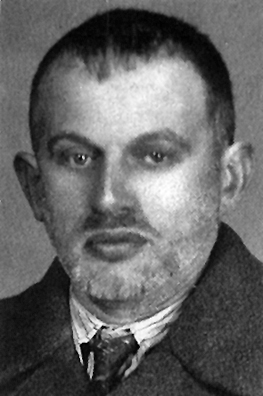
Shlomo Wiesel, Elie’s father, in 1942, a young looking man.
By Carolyn Yeager
Elie Wiesel wrote two ‘official’ accounts of his 1944-45 concentration camp experience: his novel Night (1958) and his official autobiography (Part One), All Rivers Run to the Sea (1995). Thirty-seven years separate these two publications.
Three articles written by me in 2011 (and here) and 2012 contain information that demonstrate conclusively that Night is not a true account of the experience Wiesel may have had with his family at Auschwitz-Birkenau in 1944. Night is written for “effect” and to be a gripping father-son drama that rises to the standards of a literary work of art. Night cannot, therefore, be called Wiesel’s testimony – a claim he made on several occasions.
Because a lot of information was conveyed in these three articles – a lot of details were covered, and I had other purposes in mind – this crucial fact easily gets lost to the reader’s attention. In this article I will zero in on this “crucial evidence” in order to make it crystal clear why Night can only be considered a work of fiction and Elie’s autobiography “All Rivers …” is the place to go for Elie’s ‘true’ account of his experience.
The main evidence I want to put up front is the agreed upon birth date of Elie’s grandmother Nisel Bash Wiesel, mother of Shlomo and Mendel and four daughters. In 1957, Yaakov Fishkovitz filled out a Yad Vashem Page of Testimony (PoT) for his aunt Nisel, stating she was born in 1881 in Chust, Romania and died at Auschwitz in 1944. In 1999, Eliezer Shlomovitz, living in Los Angeles CA at the time, also filled out a PoT for Yad Vashem giving his grandmother’s birth year as 1880, with a question mark. Elie Wiesel never filled out a form for his grandmother, whom he wrote he was very close to, nor for his mother or sister, but only one for his father.
Why Grandma Nisel’s birth date is so important
A birth date of 1880-81 makes Grandmother Nisel 63 or 64 years old in 1944, a figure agreed upon by Hilda Wiesel. However, the story line in Night, accepted as factual by writers, journalists and Internet sources like Wikipedia, gives Father’s age as 50 in 1944, which, if true, would mean grandmother Nisel was only 13 or 14 years old when she gave birth to Shlomo, her third child, and only 11 or 12 at most when she gave birth to her first child. Such a shockingly young age is not in the tradition of Hasidic Judaism to which the Wiesels’ belonged.
In the scene in Night when the family arrives at Birkenau around midnight, Father tells a fellow prisoner who questions him that he is 50 years old and the prisoner urges him to say he is younger. Similarly Eliezer says he is “not quite 15” and is told to make himself older. He subsequently answers “eighteen” when questioned by the guard (or Mengele?). Both men are passed on through. From this, and apparently this alone, the default birth date for Shlomo Wiesel became 1894 and no one, including Elie, ever questioned or corrected that. However, Elie slyly left blank the date of birth on the Yad Vashem PoT he filled out for his father in 2004, and he never offered a birth date for either of his parents.
Wiesel adds 10 years to Father-son age difference in Night
In 1957, Yaakov Fishkovitz also filled out a Yad Vashem PoT for his cousins Shlomo and Mendel Wiesel, giving their dates of birth as 1903 and 1905 respectively. These are probably correct because it makes their mother Nisel age 22 or 23 when Shlomo, her third child, was born, and age 24-5 when Mendel, her fifth, was born.
So why did Elie, in writing Night, make Father 50 years old instead of his real father’s age of 41? Answer: To make the theme of a role reversal between father and son more dramatic, of course. To deepen the loneliness felt by the boy watching his worn-out father break down under the cold, uncaring death machine perpetrated by the evil German Nazis. To write the most heart-breaking story he could!
For the same reason, his 10-year old sister became seven years old and he even made himself a year younger (14 going on 15 instead of 15 going on 16).
It couldn’t be more clear that his purpose in writing Night was different than his purpose for All Rivers, which attempts to give a record of his early life and actual family history. In fact, while Wiesel writes pretty extensively about his grandmother Nisel, who even accompanied the family to Auschwitz in All Rivers – she doesn’t appear at all in Night. He left her out as extraneous to his tightly-constructed narrative, the purpose of which was not to tell it as it really happened.
Summing up
So when the facts diverge between the two books, as they often do, go with All Rivers as the more accurate version. For example, in Night, Eliezer is in the hospital at Birkenau in January 1945 with an infected foot. In All Rivers, he tells the very same story but it is not his foot at all, but his knee that is operated on! If there is any truth to the story, which can be considered doubtful, accept that it was his knee. (I think Elie, or one of his Night editors, liked the dramatic image of leaving a trail of red blood in the snow, so what the heck, just change knee to foot!)
To sum up, Wiesel’s willingness to change important details about his family, and his own major experiences, tells us that creating a “true account” of their year of internment was not his goal. For him, no different from most survivors who write memoirs, he preferred what was “true in his mind.” Or, in other words, what made for a better and hopefully more successful book.
2 Comments
Category Featured | Tags: Tags: All Rivers Run to the Sea, Auschwitz-Birkenau, Buchenwald, Grandma Nisel Wiesel, Night, Shlomo Wiesel,
Social Networks: Facebook, Twitter, Google Bookmarks, del.icio.us, StumbleUpon, Digg, Reddit, Posterous.
Tuesday, February 22nd, 2011
By Carolyn Yeager
copyright 2011 carolyn yeager
Edited for the 3rd time on March. 1st, 2011
1949-1955: Wiesel’s movements and life-support system during these years follow an odd pattern.
In January 1949, six months after the establishment of Israel as a state, the purpose for the Irgun presence in Europe changed. Their Paris newspaper Zion in Kamf no longer being necessary, the office shut down. “Elie Farshtei and his lieutenants, Joseph [Wiesel’s boss] among them, were recalled to Israel. I received no orders or aid from anyone. “Why don’t you come with us?” Joseph asked. I promised to think about it.” 11
This is problematic. Was Wiesel’s enthusiasm for Israel simply in his fantasy? The formation of Israel had seemed to mean everything to him; why would he not want to live there now it had become a reality? It was also a logical solution to his stateless status. Once again, we feel we’re not given the true picture. Was Wiesel “not recalled” with the others because he was more useful in Europe, where he could better serve the new state. He says he now returned to his “studies,” and “There were days when I was so absorbed in my reading that I never left my room. I had nothing to seek in the desert.” [Rivers, p 174]. The world around him in Paris, where he supposedly preferred to stay, he calls a “desert!” Actually Israel was a desert, not Paris. Wiesel reveals his disdain for the Gentile world, even though he takes advantage of everything it offers him.
After loafing about for awhile, his sister Hilda’s brother-in-law arranged to get him a press card, which gave him certain privileges. Wiesel worked it out with the Jewish Agency—which after Israel’s independence became the mandated organization in charge of immigration and absorption of Jews from the Diaspora—to travel to Israel. They prepared a plan for him to join a group of immigrants in May or June [1949], traveling from the train station in Lyons to Haifa. He had the idea to become a foreign correspondent for an Israeli paper.
The group happened to include a few Irgun veterans but they were leaving Europe for good, and I was ashamed to admit that I was less idealistic and above all less courageous than they. My wallet was not quite empty; a few thousand francs (my life savings) plus one pound sterling, a gift from Freddo. [P 175]
Here again, he attempts to show he is on his own, and poor, with the explanation that he can, but only barely, afford the trip. When they reach Marseilles and the sea, they go to a camp filled with Jews in transit, waiting for their passage on the ship Negba. Now he and the other Jews are in a transit camp where deprivations and close quarters are taken in stride. One man whom they asked about military service in Israel said:
Sure it’s tough, but consider this: Once I was a partisan, an underground fighter hiding in the woods like a hunted animal, not daring to come out except after dark, and now I’ll proudly wear the uniform of the Israeli army. [P 179-80]
This is a, perhaps unintended, confession of a Jewish “underground fighter” who “came out after dark” to attack the regular German troops. Wiesel comments on this, revealing his conspiratorial view of the world:
I grew up in a tradition that denies chance. Though not everything is predetermined, everything is linked. Nikos Kazantzakis (a Greek Jewish author) once said, citing an Etruscan proverb: “It is not because two clouds are joined that the spark ignites; two clouds are joined so that the spark may ignite.” Yet, free will and the possibility of choice exist. Rabbi Akiba tells us that all is foreseen, though human beings have free choice. [p180]
In other words, do events happen and result in a consequence, or is a desired consequence the cause of events happening?
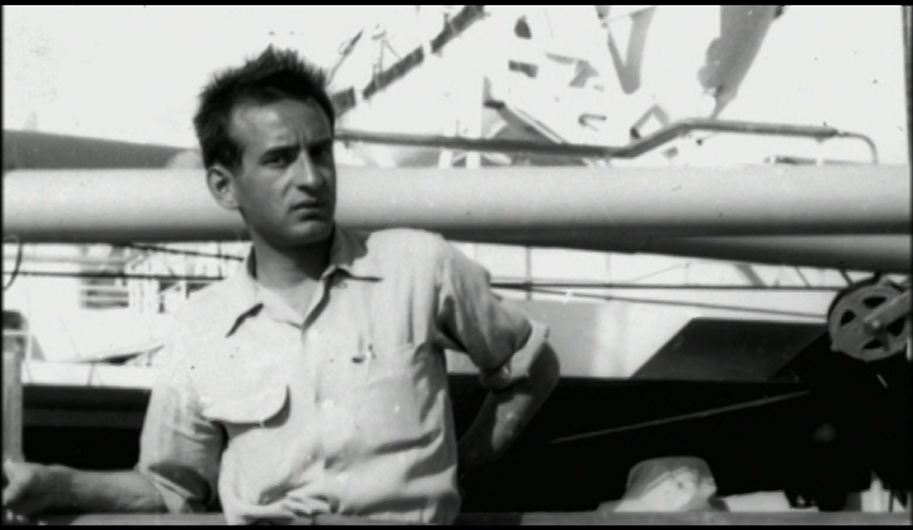
Elie Wiesel on the boat to Israel in 1949, at the age of 20.
In Israel, after his initial enthusiasm, and joy in walking on the holy ground, Wiesel was disappointed over the lack of acceptance among Jews. He heard complaints and recriminations … some people said they were “not accepted”—these were the camp survivors who were seen as weak by the new Israeli “natives.”
In this atmosphere little attention was paid to the Holocaust. For many years it was barely mentioned in textbooks and ignored in universities. In the early fifties, when David Ben-Gurion and his colleagues finally decided to pass the Knesset bill creating Yad Vashem, the Holocaust Memorial, the emphasis was on courage. Resistance fighters were presented as a kind of elite, while the victims—the dead and survivors alike—deserved at best compassion and pity. The subject was considered embarrassing. [p 184]
[It’s true the “Holocaust” was built up over time. Interest in it was fanned, beginning with the Adolf Eichmann show trial in 1961-62 and increasingly in the seventies, by the media and Hollywood. Elie Wiesel played a major role in establishing memorial museums, especially in Washington, DC , funded by U.S. taxpayers, playing on his theme of “Memory” with the help of influential newspapers with wide readership like the New York Times.]
Wiesel now says it was in Israel he got the idea to become a foreign correspondent. He writes that he got a recommendation to the editor of the small Yedioth Ahronoth newspaper, a Dr. Herzl Rosenblum, 12 a signatory of Israel’s Declaration of Independence as a representative of Jabotinsky’s Revisionist Zionist Irgun movement. Upon being hired by Rosenblum as the paper’s “foreign correspondent,” Wiesel sailed back to Paris on the Kedma, arriving in January 1950. [p 185]
I had lost track of Shushani 13 and François, but decided it would be a mistake to interrupt my studies on that account. I made a promise to myself. I vowed I would never spend less than an hour a day studying. [p 187]
Once again, it’s clear that, to Wiesel, “studying” meant reading on his own, not attending classes. Always needing to explain how he lived, he writes, “Money remained the problem. Once again, Shlomo Friedrich, my angel of mercy, managed to steer some free-lance translations and editorial work my way.” [p 188] We will see more of this type of explanation. Whenever Wiesel needs to solve the mystery of the appearance of needed cash, “free-lance” work is often the way he does it. Something to think about: Why Wiesel did not stay in Israel, among his own people who were so friendly and helpful, rather than choose to struggle in Paris as a stateless person? The most obvious answer is that he was assigned a job to do in France for the benefit of Israel. “I worked in my hotel room, a sunless cubicle overlooking the courtyard,” he writes.
In 1950, Elie Wiesel’s opportunities for travel begin … with a little help from friends
Suddenly wanting to return to Israel to talk to his new editor [or handler?] face to face, he somehow manages an appointment with a director of Zim Shipping.
I went to see a man called Loinger … a director of Zim, the Israeli shipping company. I explained … I had to go to Tel Aviv … Loinger understood immediately [!] … he picked up the phone and issued instructions …I was to be given a round-trip ticket on the Kedma that very day.[…] This crossing was very different from the last one. I had a comfortable cabin larger than my hotel room, a private shower, fruit and flowers on the table. [p 190]
This special treatment remains unexplained. Wiesel only tells us that, once in Israel, he visited with Dr. Rosenblum and became friends with his son, Dov. No discussion about his job is reported. Upon his return to Paris, “by chance” … by chance, mind you … he meets an official of the Jewish Agency who invites him on an automobile trip to Morocco. He “quickly” got an exit visa and a transit visa, “luckily” having enough photos on hand.
But what about money? I had one month’s rent on my room saved up. I took the money, stuffed everything I owned into an old valise, and that was that. There were three of us in the car. The first stop was Marseilles, where we stayed in the transit camp near Bandol. […] Now it was Moroccans who were waiting to “ascend” to Israel. [p193]
This is the same camp he was in before. Wiesel says he questioned the Moroccans, spoke to them in fluent Hebrew of how wonderful Israel was. This little speech was enough to bring him a large tip from the camp director.
The camp director was so pleased with my little speeches that he insisted on paying me ten thousand francs (two hundred dollars). At first I refused, but I finally said thank you and put the money in my pocket. We set out for the Spanish border, I was terrified of the police and customs officials who examined my stateless person’s travel permit. Would they take me for a Communist agent, a veteran of the International Brigades? True, I could tell them I was only eight to ten years old during their filthy civil war, but did fascists know how to count?
Ouch. What to say about this? First, $200 in 1950 was the equivalent of around $1000 today. Could a camp director hand out that kind of money to a stranger for relating some feel-good stories to his transient charges? Not unless he was rich and very generous. We can only believe this story as told if we understand the camp as part of the Jewish Agency network for assisting immigration into Israel, and the “director” as something more than just a camp director. More likely, he was quite aware of journalist Wiesel, and what his needs were. Secondly, Wiesel’s extreme bitterness toward the “fascist” Catholic-Franco Spanish state is apparent here. He knows he is not dealing with Jew-friendly power and is nervous without that support. But he had no trouble and the threesome made it into Morocco.
I was dazzled by the subterranean nightlife of Tangier, a cosmopolitan city of countless entrepreneurs, from the most honest to the shadiest. [p196 – Now this is a Jew-friendly place.] … We crossed Spanish Morocco at breakneck speed and, arriving in Casablanca, encountered a blinding but somehow soothing whiteness … My traveling companions had contacts within the Jewish community. [p 197]
I bet they did. A poorly dressed Jew offered to serve Wiesel as a guide; he proved to know his way around the Jewish community, introducing Wiesel to many and varied sorts of people . One Saturday afternoon they attended a meeting at a Zionist club. Wiesel writes that after “teaching a few songs” to the local members, his traveling companion from the Jewish Agency gave him an envelope containing money that seemed “princely to me,” assuring that there were “no more money worries for two or three weeks.” [p 198]
Wiesel says he wrote articles while there, without really understanding the culture. When he returned to France, he received a telegram from ‘Ifergan,’ his guide: “Your articles aroused anger. I am now in the hospital, with a few broken ribs.” Twenty years later, Wiesel wrote in Yedioth Aronoth about this “wrong” he had inadvertently caused, and received a response from ‘Ifergan’ that contained the following:
Don’t blame yourself. I was only doing my job when I followed you. I was working for the Mossad at the time, and they told me to keep an eye on you. The chance of having my ribs broken was part of the deal.” [p 199]
Why would the Mossad want to keep an eye on our young journalist? What other reason could there be than for his protection. Did the unnamed official from the Jewish Agency invite Wiesel to come along because of his gift for telling stories in impeccable Hebrew and teaching songs to emigrating Moroccan Jews? That seems too simplistic. In any case, Wiesel is definitely a precious commodity who is never left without funds.
Now … twenty pages later, though dates are not given, Wiesel reports feeling “disillusioned with Europe” and decides to travel to India. Prior to this, he was passionately involved with the negotiations on reparations with the Konrad Adenauer government. Heading for Bonn, Germany from France, he first spent a day at Dachau, where he says he was “troubled and depressed, for the Jewishness of the victims was barely mentioned.” [p 202] He is no doubt unaware to this day that few Jews were kept at the Dachau camp. Typical Wieselism!
The Zionists offered him a well-paid job, with lodgings in a luxury hotel, as interpreter for Nahum Goldmann, the Polish founder and long-time head of the World Jewish Congress, at the conference of the WJC in Geneva. The Jews were deciding/debating the reparations issue among themselves. Wiesel says he was against the German reparation payments on the grounds they would lead to forgiveness or a “balancing of the shoah account.” Those in favor, such as Goldmann, argued the money for Israel was most important, while those against, including Wiesel’s former Irgun leader Menachem Begin, felt they stood on the moral high ground and would lose it by accepting financial compensation, which signaled “forgiveness.” Wiesel has always been against forgiveness. Goldmann has always been for the money, and “the Holocaust” was just another way to get it.
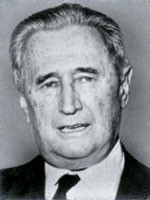
Left: Russian-born Nahum Goldmann, the long-time head of the World Jewish Congress, in 1966. Below: Moshe Sharett and Nahum Goldman, 3rd and 4th seated from left, signing the German-Israel Reparations Agreement in Sept. 1952
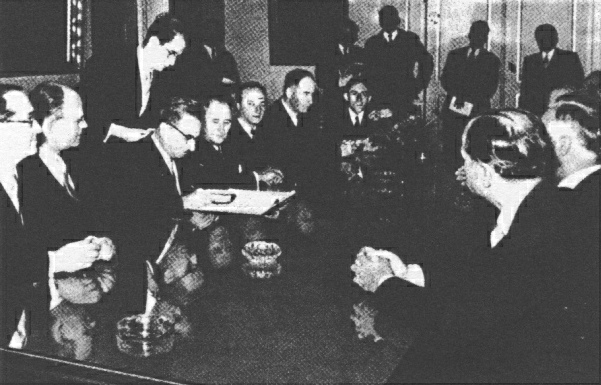
Miracles, miracles …Wiesel makes his most miraculous trip of all—a journey to India.
I had long dreamed of visiting India, drawn to it by a desire to meet not maharajahs but sages, yogis, and ascetics … why not compare the Jewish idea of redemption with the Hindu concept of nirvana?
Travel expenses were a problem. Yedioth had no money, so I didn’t even bother asking. I wrote ten articles for various Yiddish newspapers, promised ten more for later, did a few translations, and bought a lottery ticket for the first time in my life. Miracles of miracles, I won a modest amount, and at last I had a ticket in hand, but not much more. The two hundred dollars in my wallet would not take me far. [p 223]
Lottery ticket? Isn’t that the lazy Wiesel mind again, coming up with whatever explanation comes to him without bothering whether it’s believable or not? My interpretation is that he is so confident of being protected by varying sorts of ubiquitous “Mossad agents,” even those of a volunteer status, that he doesn’t need to worry. Or is he just having fun with us? At any rate, we have here the usual nonsense. He wrote “ten articles” [nice round figure] for “various” newspapers” and promised ten more [for a cash advance?]. I ask: If he could get this work whenever he needed it, why not do it all the time and end the relative poverty he claims he was living in? Also, note the $200 figure again. This is not the last time we’ll see it.
There remained the question of a visa. Dan Avni, press attaché of the Israeli embassy … phoned his Indian colleague and settled that matter for me.
What Indian colleague is he speaking of? India didn’t establish diplomatic relations with Israel until 1992. At any rate, there was an “Indian colleague” who arranged an entry visa for Wiesel. Do you think he also got some assistance while he was there? But he never mentions anything like this; he pretends he was just helped along by miracles. It’s pretty clear, however, that he had to have some kind of unofficial business to carry out for Israel. With diplomats easing his way, he was off.
During the crossing—with stopovers in Suez and Aden—I studied English, read […] A fellow passenger […] gave me the name of an inexpensive hotel in Bombay. [p 224]
The passenger was a “medical student” who also played the ponies. He convinced Wiesel to wager some of his $200. This doesn’t sound like something Wiesel would do, but he says he did and came out even. The passenger, however, lost his money and now convinced Wiesel to lend him his $200 [to bet more!] until they reached Bombay, where he would be able to pay Wiesel back. And Wiesel did so! When they disembarked at Bombay, a very worried Wiesel searched the crowd for his “friend” and, lo and behold, he showed up with the money in hand. This is a strange story. It sounds like the yarn of an inveterate story-teller, embellishing greatly on something that in reality was far less suspenseful. At any rate, it’s definitely not one of prudence; and may be told to demonstrate his uncanny “luck.”
Wiesel wanders around Bombay, encountering begging children and orphans. He “set out in search of the country,” but reveals no plan of any kind to his readers. How far would he get on $200/$1000? Well, naturally, a miracle intervenes.
One day I met a rich and influential Parsi. (Seemingly sitting at an outdoor café.) We chatted about this and that, and he found something about me intriguing. (His Irgun handshake?) […] Several hours later, as he left to return to his associates, he gave me a calling card on which he had written a few words. “India is a vast country, he said. “You will undoubtedly move around a lot. With this card you can take any domestic flight to any destination.” I didn’t know how to thank him. In fact, it took only a few weeks for me to appreciate the true value of his gift. Whenever I was hungry, I would get on a plane. By then I had discovered the identity of my benefactor: He owned the airline. [p 226]
How similar this is to his experience with the Zim Shipping Lines! Wiesel throws out these stories in his 1995 memoir with little concern for how flimsy they are. He is used to people believing him and not asking bothersome questions. Again, we’re not given the name of this “Parsi” or his airline – just as we find in the concentration camp stories by Wiesel, and by many others.
I ask: How practical is it to fly from one city to the next in order to eat a meal? You end up in another place. First you have to get to the airport, wait around for the flight, board and finally be served a meal. After that, de-board the plane, wait around for your return flight and another meal, land, de-board, leave the airport and return to your lodgings. By then you will be hungry again. Were airline meals worth it? This is India in the early 1950’s—a third world country. He says he did this for “a few weeks” at least. Wiesel says a lot of foolish things, and this is just one more. He obviously had sufficient money for this trip and probably free travel arrangements made by his handlers. He is lying outrageously to his readers.
We also learn very little of substance about the country and what he did. Back in Bombay, Wiesel spends a Shabbat with a wealthy Jewish family.
I went to synagogue. My hosts proudly told me of their success. The Sassoon and the Kadouris were super-rich families, veritable dynasties. But it had never occurred to anyone to discriminate against them because of their origins or their ties to Judaism. There were so many ethnic groups, languages, cultures, and traditions in this vast country that Jews did not attract special attention. […] I returned from India even more Jewish than before. [p 228-9]
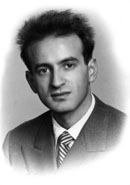 There we have it—an explanation for the Jewish drive to racially and ethnically mix all nations but their own. It is so they will not attract special attention in the Diaspora with their super-wealth. Since Wiesel sees through eyes that can only admit Jewish persecution, he is often not aware of what he’s saying, and revealing, to the rest of us who see through very different eyes. This is a paragraph that should become better known.
There we have it—an explanation for the Jewish drive to racially and ethnically mix all nations but their own. It is so they will not attract special attention in the Diaspora with their super-wealth. Since Wiesel sees through eyes that can only admit Jewish persecution, he is often not aware of what he’s saying, and revealing, to the rest of us who see through very different eyes. This is a paragraph that should become better known.
Left: Elie Wiesel in his early 20’s, at the time of these travels.
A few more trips—why not, they’re free.
A free ticket from El Al enabled me to visit Montreal. Bea [the younger of his two older sisters] seemed happy enough; she was now working at the Israeli consulate […] I desperately wanted to ask her a question that had haunted me for years. What was it like before the selection, those final moments, that last walk with Mother and Tsipouka? It was the same with Hilda. I didn’t dare. [p 229-230]
I’ve already commented on the reasons for this in Part II of this essay. Wiesel’s next trip is to Brazil, which I also discussed previously in “Shadowy Origins of Night” in relation to the writing of his ‘first book,’ the 862-page “lost” Yiddish manuscript. However, it is relevant to the Mossad question also.
It was Spring 1954. He was going on assignment for his newspaper Yedioth Ahronoth. It seems that some Jews who had recently arrived in Israel from Eastern Europe were poor and unhappy, and the Catholic Church, according to the Zionists, was taking advantage of their unhappiness to convert them to Catholicism with offers of free passage and visas to Brazil, and $200 each. [There’s that $200 for the third time! How to explain it? Wiesel is stuck on this number.]
His editor wants him to “go and see what’s going on” with this “Catholic scam” in Brazil. His poet friend Nicholas, an Israeli citizen, would go with him. But once again he needs to explain the money. As usual, “A resourceful Israeli friend somehow managed to come up with free boat tickets for us.” [p238] Oh, those Israelis are incredibly resourceful! Wiesel remained in Brazil for two months, but he doesn’t tell us what he did there besides writing about the Jew-Catholic “scandal” and visiting people, including relatives. When he was called back to Paris to cover Pierre Mendes-France’s accession to power for his Israeli newspaper, it was mid-June 1954.
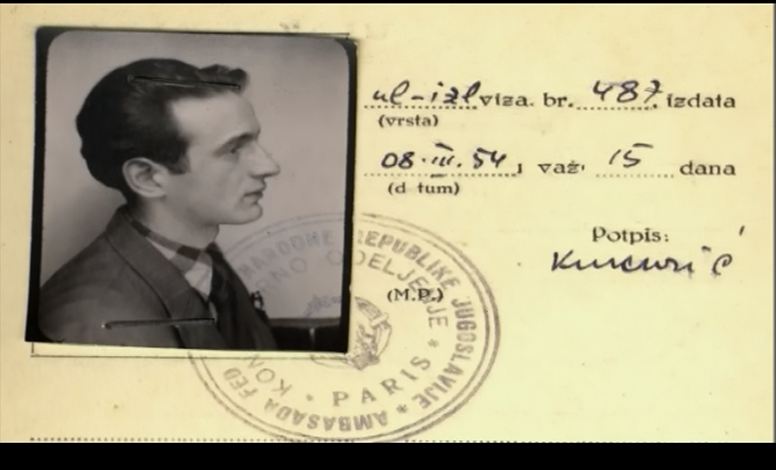 Document with Wiesel’s picture attached, dated (August?) 1954, issued by the Yugoslavian embassy in Paris . “Potpis” is Serbo-Croatian for “signature.” There is no mention of travel to Yugoslavia during this time, or any time, in Wiesel’s memoir. He appears thinner and more fragile-looking than in earlier photos when he was younger.
Document with Wiesel’s picture attached, dated (August?) 1954, issued by the Yugoslavian embassy in Paris . “Potpis” is Serbo-Croatian for “signature.” There is no mention of travel to Yugoslavia during this time, or any time, in Wiesel’s memoir. He appears thinner and more fragile-looking than in earlier photos when he was younger.
In July 1955, Wiesel makes another trip to Israel for the reason of “feeling once again the need for a change of scene.” [p 273] He went by sea and spent several weeks “making many trips through the country.” At Bnei Brak he visited the Rebbe of Wizhnitz, of his own Hasidic sect, to whom he made his famous statement that “certain things are true though they didn’t happen, while others are not, even if they did.” [p 275] That did not win him the Rebbe’s blessing.
At the end of his several-weeks stay in Israel, his editor Dov [the old man’s son] “proposed that I leave Paris and go to New York, not just to write a few articles, but as a permanent correspondent.” [p 276] Their conversation about this important decision is short and rather silly, same as with every other major event or life change that Wiesel writes about. We can easily conjecture that his Irgun/Mossad handlers thought there was now more value to be mined in New York than from his base in Paris. The German reparation talks were over, the amounts established; from now on, America was where the action was.
Next: Part IV – Déjà vu. Wiesel’s adventures in America follow the same, now-established pattern.
Endnotes:
11. Elie Wiesel, All Rivers Run to the Sea, A. Knopf, 1995, p174. [All following page numbers refer to this book]
12. Born in Kaunas in the Russian Empire (today in Lithuania), Rosenblum moved to Vienna after experiencing anti-Semitism and being prevented from studying law. In Vienna, he studied law and economics, gaining a PhD. He then moved to London, where he worked as an aide to Ze’ev Jabotinsky, a leader of the Revisionist Zionism movement. In 1935 he immigrated to Mandate Palestine and started working for the HaBoer newspaper, where he wrote under the pseudonym Herzl Vardi. In 1949, Rosenblum became editor of Yedioth Ahronoth. He remained as editor until 1986, during which time the paper became the largest selling in the country. His son, Moshe [called Dov], was later employed as editor.
13. In 1952 Chouchani left France for Israel where he remained until 1956, according to Wikipedia. See http://en.wikipedia.org/wiki/Monsieur_Chouchani
5 Comments
Category Featured | Tags: Tags: All Rivers Run to the Sea, Brazil, India, Morocco, Mossad, Nahum Goldmann, Yedioth Ahronoth,
Social Networks: Facebook, Twitter, Google Bookmarks, del.icio.us, StumbleUpon, Digg, Reddit, Posterous.
Thursday, February 3rd, 2011
by Carolyn Yeager
copyright 2011 carolyn yeager
The activities of the Irgun dominate Wiesel’s life and attention in 1948.
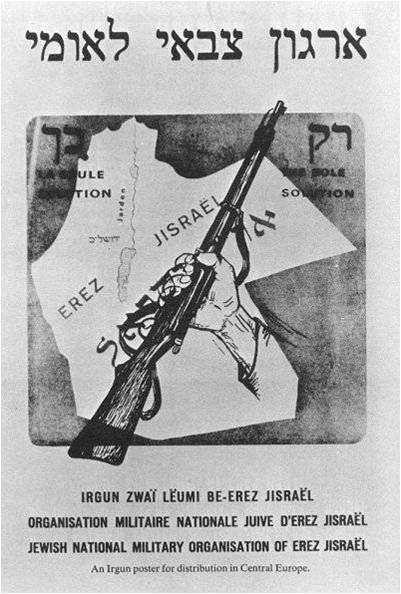
This propaganda poster, with the Hebrew words “This Way Only” on the artwork, was for distribution in central Europe. It was designed in 1937 by the wife of a Polish reserve officer who was working with Irgun representatives. [See story below: Irgun in Central/Eastern Europe] The entire area was called Eretz Israel and was claimed for a future Jewish state.
Dear Readers, As it has turned out, there is much to relate about this one year of 1948 before we get to Elie’s travels. Therefore, I ask for your patience once again. When we left off in Part I, he had just gone to work for the Irgun newspaper, Zion in Kamf. It was November 1947. Here is how he describes his vision of the underground “resistance” at this time.
Physical courage, self-sacrifice, and solidarity could be found even in the lower depths; total compassion, rejection of humiliation either suffered or imposed, and altruism in the absolute sense were found only among those who fought for an idea and an ideal that went beyond themselves. Nobility of action was found only among those who espoused the cause of the weak and oppressed, the prisoners of evil and misfortune. 5
Strangely, this sounds like the “ideas and ideals” of the National Socialists in Germany in the 1920’s who sought the way to lift themselves out of the humiliation and extreme economic hardship imposed on them by the Versailles dictate. But to young Wiesel, the only suffering worth seeing or talking about was that of the Jews. He had not a thought or concern about the native people in Palestine and what was happening to them, just as the Jews of the previous inter-war generation had no concern for the Germans they were exploiting. These others, for him, could not be seen as the “weak and oppressed,” but only as the new enemy that must be overcome by whatever methods were necessary. To Wiesel, even in his youth, only the Jewish militant fighters were “noble” when they carried out their tough and “necessary” actions.
Wiesel admits that by going to work for the Irgun in Paris he was: “risking neither death nor imprisonment. Even deportation from France was unlikely. Stateless persons were rarely deported, that was one of the few advantages of the status.” (Rivers, p162)
This again brings up the question of why Wiesel didn’t seek to become a French national. His sister Hilda had done so. Could it be that his underworld advisors were keeping open where he would be most useful? And as he himself said, being stateless had its advantages – useful for someone working on the fringes of illegality. Here’s how he describes his introduction to the Irgun.
The following Monday I presented myself at the editorial office. Joseph, the boss, showed me to a desk, handed me an article in Hebrew, and asked me to translate it. The article, published in the Irgun’s newspaper in Israel, was a denunciation of David Ben-Gurion and the Haganah and a paean to Menachem Begin, commander in chief of the Irgun. I translated the Hebrew words into Yiddish without grasping their meaning. I knew that the Haganah was fighting the British as hard as the Irgun was, and I couldn’t understand why the two movements hated each other so much. The article also mentioned the Lehi (the so-called Stern Gang), but what was its role? [p163]
I don’t think, after having two “best friends” working for the “resistance” [François and Kalman] and reading everything in the newspapers about the events in Palestine during the past year or two, that Wiesel is being entirely honest when expressing such naivete about the disputing militant factions. Continuing:
The article talked about a certain “season” during which atrocious acts were allegedly committed by the Jewish political establishment. I didn’t dare ask Joseph about this.
“I didn’t dare” brings to mind another passage he wrote on pages 229-30 describing a visit to his sister Bea in Canada. “I desperately wanted to ask her a question that had haunted me for years. What was it like before the selection, those final moments, that last walk with Mother and Tsipouka? It was the same with Hilda. I didn’t dare.”
May I suggest “I didn’t dare” is cover for the real reason—he doesn’t want an answer so that he will not know. And they – Bea, Hilda and Joseph – will be released from telling him something he will have to forget, or lie about. By not daring to know, he can remain blissfully naive about things that “happened, but weren’t real.” Or, were real but never happened?
Oddly, Wiesel’s mystic-mentor Shushani was also caught up in the Jewish assaults in Palestine:
Though he abhorred violence, he was hardly indifferent to the Jewish struggle in Palestine. Whenever the British arrested a member of an underground organization, Shushani tried to get information about his fate. One day he seemed extremely agitated. He interrupted our lesson, pacing, bumping into walls, blowing his nose, panting and wiping his forehead … It was the day a member of the Lehi and a member of the Irgun committed suicide together just a few hours before their scheduled execution. [p164]
I have had the suspicion that Shushani—the expert on the mysteries of life, the illumined one—also had connections to the Zionist intelligence network. Here we learn from Wiesel that he was so partial to the Jew’s fortunes in Palestine that he practically went into hyperventilation when two Jews met their death! Or is that just a typical rabbinic reaction, based on the belief that one Jewish life is worth a million Arabs. Think of the irony, though—that the British were executing Jews who were fighting against them in guerrilla uprisings, just as the Germans had done to Jews fighting as illegal guerrillas against their soldiers. I wonder if the wise Shushani could explain to me the difference?
Now, Wiesel wades in even deeper:
How and why did François suddenly decide to join the struggle for an independent Jewish state? Had he, too, knocked on the Jewish Agency’s door on the Avenue de Wagram? Though he joined the Lehi, and I belonged to the Irgun, our friendship was unaffected. In any case, each of us kept his activities to himself. We both agreed that the less we knew about each other, the better.6 No one asked questions at the synagogue I attended on the Rue Pave’e. To them I was a student like any other. If only they knew. [p165]
Wiesel is conscious of a separation between himself and ordinary people, even other Jews who would naturally be aware and following what was happening in Palestine with great interest and concern. He has gone much farther, and is actually working for those in the “lower depths” of the bloody struggle taking place. Another strange phrase is “I belonged to the Irgun.” In his signature manner, Wiesel covers up his true identity and objectives, but reveals them in the words that pop out unawares. I have commented about the psychological aspects of this trait among criminals elsewhere. So many luminaries of the “resistance” funneled through his office every day that he, by any measure, has to be considered something of an insider within the Irgun.
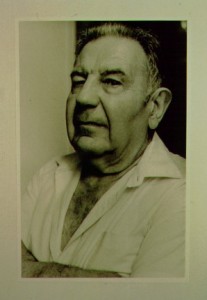
Above: Henry Bulawko, according to Wiesel one of his fellow camp survivors and an Irgun associate.
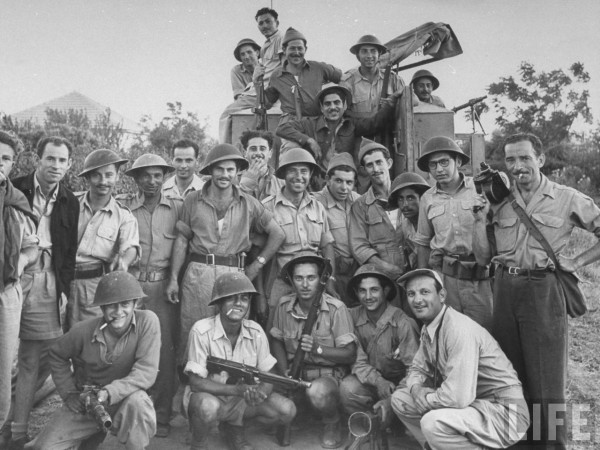
Haganah soldiers pose in 1948.
Through work I met Shlomo Friedrich, the leader of Betar, Jabotinsky’s Youth Movement. He was a tall, vigorous man with a rapid gait, a former prisoner in the Gulag.7 […] The process of becoming a journalist involved attending press conferences, public meetings, and demonstrations, and offered a chance to meet such “colleagues” as Henri Bulawko.8 As we talked, we discovered that we had been in Auschwitz-Buna at the same time. And I met Leon Leneman, one of the first to sound the alarm for Soviet Jews. […] Envoys from the Irgun came to the editorial offices every day. All were from Palestine and I was supposed to know only their aliases. Their commander, Elie Farshtei, was shrouded in mystery, but, after swearing me to secrecy, Joseph told me of an incident from his past. In 1946 … he was captured and tortured by agents of the Haganah […] I was flattered when Elie Farshtei stopped by to ask whether I wasn’t working too hard, whether my studies weren’t suffering. I told him that everything was fine, and that I hoped he was pleased with my “contribution” to “Zion in Struggle.” […] In the corridors I might have encountered a young Jewish girl from Vienna, beautiful and daring, who transported documents and provided a hiding place for guns: my future wife.9. [p166-7]
Elie was in deep admiration for all these and many other fighters. No “Nazi” could be more in thrall to the leaders of his movement. He tried to ingratiate himself and win their approval. There is never a hint of concern or questioning about the damage inflicted on non-Jews, of the “human rights” of the native Arab inhabitants. He mentions only Jewish casualties. “A wave of terror swept over the Jewish communities in various Arab countries.” A synagogue was burned, “dozens of Jews were slaughtered in Aden, Jerusalem was besieged” and “gangs loyal to the grand mufti, the pro-Hitler Haj Amin el-Husseini (former ally and protégé of Himmler), attacked Jewish villages and convoys.”
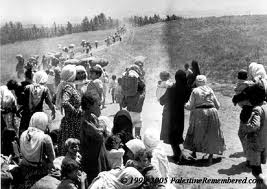
May 15, 1948: Beginning of a 62-year exile for 750,000 Palestinians
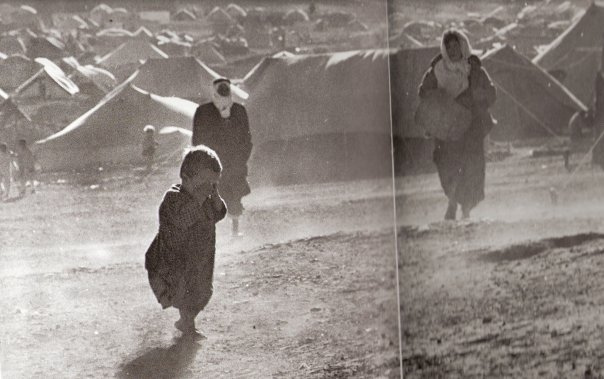
Tent city in Palestine, 1948
It would soon be May, and the day of independence. Mobilized units of the Haganah, the Palmach, the Irgun, and the Stern Gang united their efforts and their wills. It was imperative to protect every kibbutz, every settlement. The Zionist organizations in the Diaspora worked tirelessly to supply our brothers in Palestine with political and financial support. In France and in the United States as well, we were mobilized. Young and old, rich and not so rich, all felt the fever our ancestors had known in antiquity. Representatives of all the resistance groups worked day and night, though separately, procuring arms and ammunition, raising funds, recruiting volunteers who would set out for the various fronts of the nascent Jewish state. Elie [Farshtei] and his aides no longer found time to sleep. Out of solidarity, neither did we. [p167]
Excitement! All Jews, all over the world, were involved. Wiesel approved 100%, including the procuring of arms and ammunition. In spite of the fact that it was illegal, the “fever of our ancestors” justified it. You might be wondering why Wiesel didn’t speak in a more moderate tone when he wrote his memoir in the 1990’s; why he didn’t pretend a more universal concern for human rights in order to protect his reputation as a champion of human rights. I say he would not because he will never detract in any way from the utter righteousness of the installation of a Jewish state in Palestine. That can never be questioned, human rights be damned. That’s one reason Elie Wiesel is such a hypocrite. Other people’s struggles can be criticized and shown to be inimical to the rights of others, but never the Jew’s.
I find it interesting that Wiesel chooses the words “Young and old, rich and not so rich,” rather than “rich and poor.” There were no poor Jews? Or is it understood that this was a networking of those with means and influence; the poor were really of no help. They are just pawns in the game, used to parlay the idea that they are the ones for whom all this is being done.
My personal circle narrowed. Kalman left for America; Israel Adler was recalled by the Haganah and was now in a training camp …near Marseilles. My friend Nicholas informed me that he planned to abandon his studies [to go and fight.]
Deep down, I had reservations. Military life was not for me. […] what if I died in combat? I hadn’t yet done anything with my life, had written nothing of the visions and obsessions I bore within myself, hadn’t yet shared them with anyone. […] Nevertheless, I decided to heed the call to arms.
Nicholas and I signed up at the recruitment office … [p167-8]
Wiesel says he didn’t pass the medical examination. Really? Were they that particular? The doctor told him he was “not in good shape.” So he continued to work for the Irgun newspaper. Soon it was Friday, May 14, 1948, the day David Ben-Gurion read Israel’s Declaration of Independence over the radio. Wiesel claims to have been extremely moved, possibly beyond anything before in his life. “I was unable to contain my emotion. When had I last wept? It was in an almost painful state of reverence that I greeted Shabbat 10.” [p169]
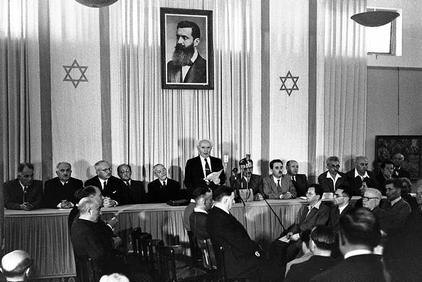
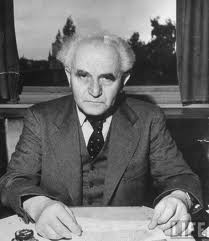
Left: David Ben-Gurion reads the declaration of “Israel’s” independence, May 14, 1948 in Tel Aviv. A portrait of Theodor Herzl hangs above him. Right: Ben-Gurion, Israel’s first Prime Minister, in the same year.
* * *
The role of the Irgun in Central/Eastern Europe—collaboration with Poland, then Paris
At this point, I would like to insert some information about the role of the Irgun in Central and Eastern Europe from the website http://www.etzel.org.il/english/ac16.htm. It tells of the cooperation between the Polish government and Jewish “resistance” groups before the outbreak of WWII, revealing the desire of European nations, other than Germany, to reduce their Jewish population.
More than three million Jews, concentrated mainly in the large towns, lived in Poland in the 1930s. In Warsaw, for example, Jews constituted one-third of the population. The Polish government, worried by the increase in Jewish influence in the country, not only did nothing to hinder the illegal immigration movement which the Revisionists (Zionist faction of Jabotinsky – Irgun) organized in Poland, but actively assisted it.
In 1936, Jabotinsky met with the Foreign Minister, Josef Beck, and created the infrastructure for collaboration. The Polish government hoped that the establishment of a Jewish state would lead to mass emigration of Jews, thus solving the Jewish problem in Poland.
In 1937, Avraham Stern (Yair), then secretary of the Irgun General Headquarters, arrived in the Polish capital armed with a letter of recommendation from Jabotinsky. He met with senior government officials and laid the practical foundations for cooperation between the Polish army and the Irgun Zvai Le’umi. […] Polish army representatives handed over to Irgun members weapons and ammunition which […] were despatched to Eretz Israel. Some of the weapons were concealed in the false bottoms of crates in which the furniture of prospective immigrants was transported, or in the drums of electrical machines. When the consignments reached Eretz Israel, they were taken to a safe place, and the weapons were removed from their hiding place.
Stern was much helped by Dr. Henryk Strasman, a well known lawyer and an officer in the Polish Reserve force. The Strasmans introduced Stern to the Polish intellectuals and high officials. It was in their home that the preparations for the publication of the Polish periodical “Jerozolima Wyzwolona” (Free Jerusalem) were begun. His wife, Alicia (Lilka) designed the cover – A map of Eretz Israel with the background of an arm holding a gun and the words in Hebrew: ” ” (This Way Only). This became later the symbol of the Irgun. [See poster at top of page]
In March 1939, senior Irgun commanders from Eretz Israel participated in a course held in the Carpathian Mountains, instructed by Polish army officers. The course took place under conditions of great secrecy, and the instructors wore civilian clothing. The participants were not permitted to establish contact with local Jews, and the letters they wrote home were sent to Switzerland, inserted into new envelopes, re-addressed to France, and finally posted from there to Palestine. The trainees received military trainingand were taught tactics of guerilla warfare.
Three remained in Poland: Yaakov Meridor, who was responsible for despatching the weapons received from the Polish army; Shlomo Ben Shlomo, who organized a commanders course for selected members of Irgun cells in Poland, and Zvi Meltzer, who organized a similar course in Lithuania.
September 1, 1939 cut short the extensive activity of the Irgun in Poland and Lithuania. Most of the arms which the Irgun had received were returned to the Polish army and Irgun activity ceased.
After the war, the Irgun General Headquarters decided to renew activity in Europe and to launch a “second front”. The first base was established in Italy, […] As a result of arrests in Italy, Irgun Headquarters in Europe were transferred to Paris. Meanwhile, branches had been set up in various parts of Europe, and attempts were made to strike at British targets. A train transporting British troops was sabotaged, and an explosion occurred in the hotel in Vienna which housed the offices of the British occupation force. However, the blowing up of the British embassy in Rome remained the pinnacle of Irgun operational activity in Europe.
In January 1947, Eliyahu Lankin reached Paris after his successful escape from internment in Africa. Lankin was a member of the Irgun General Headquarters before his arrest and had also served as commander of the Jerusalem district. The French government, which knew of his escape from British custody, gave him an entry visa, and when he reached Paris he was appointed Commander of the Irgun in Europe.
Shmuel Ariel, sent to Paris by the Irgun in early 1946, was in charge of immigration. Ariel established good contacts with the French authorities, and the Haganah called on his services extensively in connection with sailings from France. Thus, for example, Ariel succeeded in negotiating with the French Ministry of Interior the granting of 3,000 entry visas to Jewish refugees arriving in France en route to Palestine. Some 650 of them left aboard the Ben Hecht, 940 on the arms vessel Altalena, and the remainder were transferred to a ship organized by the Haganah. Thanks to Ariel’s close contacts with the French authorities, the Irgun General Headquarters was permitted to operate in Paris without interruption, and to supervise activity in the many branches all over Europe.
While we hear so much about the “Transfer Agreement” and the Zionist collaboration with the German National Socialists under Adolf Hitler, where do we hear that beginning in 1936 the Polish Government was also desirous of, and actively engaged in, transferring their Jews to Palestine? As with the Germans, the breakout of war brought an end to this cooperation. But as soon as the war was over, it started up again in Paris. Paris was then the headquarters of the Irgun in Europe, with the approval of the French Interior Ministry. An Irgun special representative was in charge of illegal immigration to Palestine. Can this explain why Wiesel remained in Paris until 1955? It does shed light on the alternate world of underground Zionist operations that Elie Wiesel was absorbed into … just how deeply we can only speculate.
Next: Part III – Elie Wiesel’s travels and how they were funded.
Endnotes:
5. Wiesel, All Rivers Run to the Sea, p162
6. There is that “I didn’t dare ask” again; better not to know. You’re going to see as we go along that there are several phrases and numbers that Wiesel uses again and again.
7. In the Soviet Union, obviously.
8. A Lithuanian/Russian Jew born to an Orthodox rabbi, and a member of the French Resistance who was arrested in 1942
9. Wiesel is referring to Marion, whom he met and married later. As a “resistance” volunteer herself, she could well have delivered secret documents to his office.
10. Shabbat is the Jewish Sabbath, from sundown Friday to sundown Saturday.
7 Comments
Category Featured | Tags: Tags: All Rivers Run to the Sea, David Ben-Gurion, Elie Farshtei, Francois Wahl, Haganah, Henry Bulawko, Irgun, Shushani/Chouchani, sister Bea, Zion in Kamf,
Social Networks: Facebook, Twitter, Google Bookmarks, del.icio.us, StumbleUpon, Digg, Reddit, Posterous.
Friday, January 21st, 2011
By Carolyn Yeager
copyright 2011 carolyn yeager
Updated on Jan. 24, 2011
What makes Jews special? Are they like “other people” or are they not? Here is one confusing answer from the world’s most famous holocaust survivor.
As I was compiling the particular sections in All Rivers Run to the Sea that reveal, in one way or another, Elie Wiesel’s sometimes certain, sometimes probable links to the Mossad and it’s precursors, I came across this interesting passage that shows something a little different—but equally important to the understanding of Wiesel’s views on crime.
Thus, I’m taking a short detour on the way to the promised “Elie Wiesel and the Mossad,” part two, but I will get there eventually.
On page 288 and 289 of Wiesel’s first memoir dealing with his life up to 1968 or thereabouts,1 he writes that, after his arrival in New York in 1956, his editor in Israel, Dov, suggested a report on organized crime in America. Wiesel tells us that when doing the research he discovered some Jewish names among the underground crime figures, even some working for the Irgun.
I’m sure that doesn’t surprise most of you reading this, and certainly not me, but Wiesel claims a different response:
These revelations came as a shock to me. I simply could not imagine a Jew becoming a hired killer. Yes, I had too idealistic a view of Jews, but the fact is that in Eastern Europe my people might have been criticized for just about anything, but not involvement in murders. Jews may have been guilty of lying or cheating, fraud or smuggling, theft or perjury, but murder was unimaginable.
Elie—who had worked for the Irgun for years in Paris; followed every fragment of news about the events in Palestine from at least 1946 on; was in communication with many of the behind-the-scenes characters responsible for the successful ascendance of the state of Israel—this man was shocked to learn that Jews were among the world’s killers, hired or not?
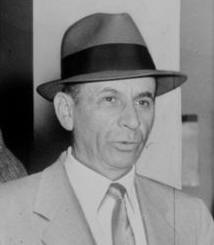
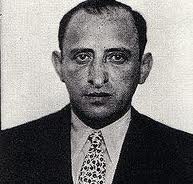
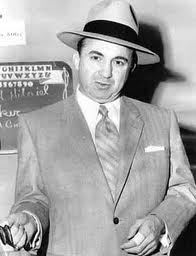
Left: Meyer Lansky, boss of the Jewish crime syndicate, was a Polish Jew born in Russia who emigrated to the U.S. in 1911; Center: Meyer “Mickey” Cohen, born in Brooklyn to Ukrainian Jewish parents, was a notorious mobster; Right: Moe Sedway, Lansky’s faithful lieutenant.
Wiesel is pretending to an idealism he had to have lost long ago, if he ever had it. When he says “I could not imagine a Jew becoming a hired killer,” the first thing that pops into my mind is Condoleezza Rice saying “We could not imagine an airplane being used as a weapon by smashing it into a skyscraper.”
Yet, he readily admits that Jews lie, cheat, commit fraud and acts of smuggling, theft and perjury (see Is Elie Wiesel a Perjurer?). I guess, in Wiesel’s mind, these crimes are not as bad as murder. But any one of them can result in death to the parties victimized by such crimes, and anyone committing them has to know the harm they are doing to these others. We also know that lying and cheating are commonly done by Jews against non-Jews, and that the Talmud and the Torah not only excuse these crimes but in some cases recommend them! Fraud, smuggling and perjury necessarily combine both lying and cheating.
In a way, Wiesel, as a religious Jew well-versed in the scriptures, seems to be excusing these practices because they are less than murder, the one crime Jews should never do. But yet killing for the attainment of Eretz Yisrael, as did all the “resistance fighters” he so admired, must be acceptable to his Zionist eyes.
Let’s see if there’s an answer in his following paragraph:
I like to think that what accounts for this virtual absence of blood crimes in our communities was perhaps related to the commandment revealed at Sinai: Thou shalt not kill. The voice of God sounds and resounds in our collective memory. But then what accounts for the present reality? The fact is that in modern Israel acts of murder do occur. True, there are few such cases, but even one is too many. It seems we are finally becoming a people like any other, neither better nor worse. Does this mean we are not “the chosen people?” No, we are, but only in the sense that Anglo-Jewish writer Israel Zangwill attributes to the term: “the people that chooses itself, its destiny and mission.” And as important, in the sense of teaching all peoples that they, too, must aspire to reach beyond themselves, to lift themselves ever higher, and to see themselves as unique.
Wiesel tells us that Jews became murderers when they became more like the rest of us. Does history bear that out? Can it not be demonstrated that what accounts for the absence of blood crimes within Jewish communities is related to the commandment not to do harm to your fellow Jews—but the same does not apply to non-Jews. The Ten Commandments were applied to fellow Hebrews, not to outsiders. This is more likely what accounts for the present reality. Jews in the Diaspora have plenty of targets which are not forbidden to them to harm.
But Wiesel is complaining that murders now occur among Jews in modern Israel. [And we are again served up that obligatory cliché: “Even one is too many.”] He explains this downward drift by saying “we are finally becoming more like other people.” But to assure they remain “the chosen,” he is willing to make quite a concession—that it is not God who chose that Abramic tribe centuries ago, but they have chosen themselves.
Goyim have been saying that for a long time, but little did we know that Elie Wiesel would one day agree! But does he really, or did he talk himself into a corner, then try to talk himself out of it? He concludes that the Jewish mission is to “teach all peoples that they, too, must aspire beyond themselves; they, too, should lift themselves higher; they, too, should see themselves as unique. I had not thought we were trailing so far behind those darn Jews. Is it because Jews do not murder their own for hire? That may be true. But I will venture to say that Jews are routinely implicated in causing non-Jews to attack and murder each other. That cannot be OK. And there is the ironic “fact,” as Wiesel says elsewhere in his memoir, that it was Cain who slew his brother Abel at the beginning of the Jewish story.
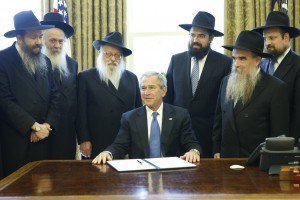
Chabad-Lubavitch members visit the White House regularly bearing sentimental mementos, such as menorahs, to make sure their interests are not forgotten. The Chabad originated in Russia and are of the same Hasidic sect as Elie Wiesel. Is it their uniqueness that Wiesel thinks the Goyim should aspire to?
Elie Wiesel goes to Las Vegas in 1957
On pages 301-2, I found another interesting passage that adds to the above. After his first year in New York, Wiesel’s editor Dov, with his wife Leah, came from Israel for a long visit. Dov was fascinated with all things American. Wiesel took them to concerts and restaurants in New York; then Dov rented a car for a six-week cross country trip for the three of them. One place they stopped was Las Vegas, which, after the war, was built up mainly by Jewish crime figures.
In 1946, Jewish gangster “Bugsy” Siegel, with help from friend and fellow mob boss Meyer Lansky, used dirty money laundered through Mormon-owned banks to build The Flamingo gambling casino. Siegel experienced financial difficulties and died in a hail of gunfire in Los Angeles, CA. Other mobsters saw the potential that gambling offered in Las Vegas. From 1952 to 1957, still using some Mormon bankers and adding Teamsters Union funds, they built the Sahara, the Sands, the New Frontier, the Royal Nevada, the Showboat, The Riviera, The Fremont, Binion’s Horseshoe, and finally The Tropicana. Already in 1954 over 8 million people were visiting Las Vegas yearly, pumping 200 million dollars into casinos. By 1957, when Wiesel arrived, it was the heyday of the flashy, openly-mobster-run Vegas. 2
Wiesel found comrades with strong Israeli ties there, as he does everywhere. He writes sparingly about it:
There was Las Vegas and its slot machines, available even in the rest rooms. Men and women were standing in dazzlingly bright casinos, betting a year’s salary or more on a little ball that leaps and dances about indifferently, stupidly, before coming to rest on a number , any number. Wherever you turn, you see frozen faces and trembling hands. The casino in Monte Carlo 3 is the playground of the rich, who seem burdened by their wealth. In Las Vegas one sees ordinary people fed up with not being rich.
At the Sands Hotel we dined with Hank Greenspun, a powerful man in the city who was the owner of the daily Las Vegas Sun, who told us of his clandestine activities in support of Israel. In 1948 he was involved in an illegal arms shipment, for which he was indicted and sentenced to several year in prison. Of this he was very proud.
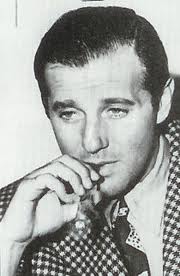
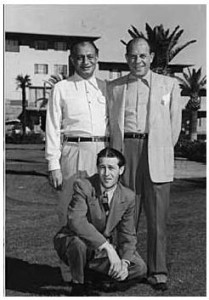
Well known Las Vegas Jewish crime figures. Left: Benjamin “Bugsy” Siegel; Right: Israel “Icepick Willie” Alderman, Joe Rosenberg, Gus Greenbaum
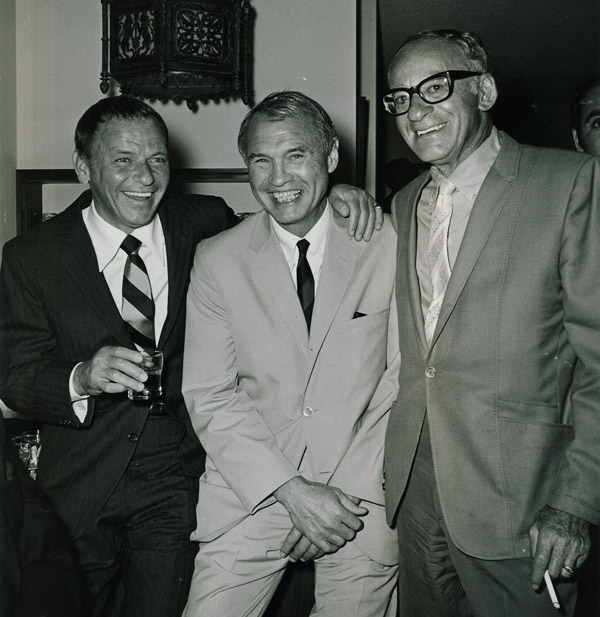
Below: Frank Sinatra, Hank Greenspun and Eddie Moss, bookie and casino manager of the Sahara Hotel.
Greenspun may have been sentenced to prison, as Wiesel says, but he didn’t serve any time. According to Wikipedia, in 1947 he was shipping guns and airplane parts to the Haganah fighters in Israel. He was arrested and convicted of violating the Neutrality Acts. Fined a relatively small sum of $10,000, he received no prison time. In 1961, President John F. Kennedy pardoned Greenspun, and when he died in 1989, former Israeli PM Shimon Peres called him “a hero of our country and a fighter for freedom.” Greenspun purchased the Las Vegas Sun newspaper in 1949, which he ran until his death. 4
Wiesel doesn’t tell us how he and his editor managed to link up with Hank Greenspun, but then it goes without saying. By 1957, Greenspun was able to entertain and regale visiting Jews and Israelis of note with his illegal exploits for terrorists operating in Palestine. A few years later, his crime was washed away by a U.S. president.
Endnotes:
1. Elie Wiesel, Memoirs: All Rivers Run to the Sea, Alfred A. Knopf, 1995. 418 pp.
2. http://en.wikipedia.org/wiki/History_of_Las_Vegas
3. He means the one in Monaco, on the French coast.
4. http://en.wikipedia.org/wiki/Hank_Greenspun
7 Comments
Category Featured | Tags: Tags: All Rivers Run to the Sea, Hank Greenspun, Irgun, Jewish crime, Las Vegas, Meyer Lansky,
Social Networks: Facebook, Twitter, Google Bookmarks, del.icio.us, StumbleUpon, Digg, Reddit, Posterous.
Sunday, January 2nd, 2011
By Carolyn Yeager
copyright 2011 carolyn yeager
Is Elie Wiesel just another Mossad asset? The question is not as surprising as it may sound.
The question of how involved Elie Wiesel was with the early terrorist groups that eventually became The Mossad, Israel’s feared intelligence arm, is one that must finally be asked and answered in a straightforward manner. Certainly, Wiesel is no stranger to politics from his young years. Zionism, along with Marxism and Communism, had strong currency among Eastern European Jews during the 20’s and 30’s; it grew only stronger in the atmosphere of the concentration camps and ghettos created by the Hitler regime and its allies during WWII.
By the time the camps were “liberated” and their inmates, along with others who desired to move about and get a new lease on life, streamed into the Allied Displaced Persons [DP] camps in Germany in 1945, the Zionist cause had reached fever-pitch. These camps, in which all Jewish people were treated with most-deserving status—no matter how they behaved or what their actual past had been—were hotbeds of recruitment for Jewish “resistance” groups such as Haganah, Irgun and Lehi, as well as for illegal transportation and entry into Palestine.
Background of Jewish Terrorist Organizations
The first Jewish paramilitary organization, Haganah [“The Defense”], was formed in 1920. It guarded the Jewish settlements that were forming in Palestine from the Arabs, who were beginning to resent the intruders. In 1931, the more militant elements of the Haganah splintered off and formed the Irgun [also called Etzel and “Defense B”], led from 1943-48 by Menachem Begin.
After 1945, the Haganah was a full-fledged terrorist organization, carrying out bombings, sabotage and illegal immigration of Jews into Palestine. Famous members included Rabin, Sharon, Dayan, Zeevi and Dr. Ruth Westheimer. After Israel became a state in 1948, the Haganah became the Israeli Defense Force.
The Irgun policy was based on ultra-radical Ze’ev Jabotinsky’s “Revisionist Zionism,” which declared that every Jew had the right to enter Palestine, and that active retaliation and Jewish armed force were necessary methods to ensure the Jewish state. It was the Irgun that bombed the King David Hotel—killing 91 people and injuring 46—and carried out the infamous Deir Yassin massacre, along with the Lehi [the Stern Gang]. The Irgun is the predecessor to today’s Likud Party.
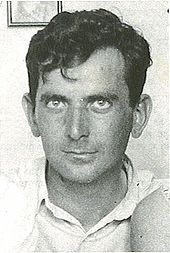
![EW_Stern [gang]](https://www.eliewieseltattoo.com/wp-content/uploads/2011/01/EW_Stern-gang1.jpg)
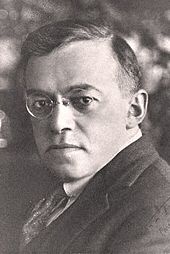
(L)Avraham Tehomi, the first Commander of the Irgun; (C) Ze’ev Jabotinsky, Irgun ideologist; (R) Avraham (Yair) Stern, founder of The Stern Gang
A commander in the Irgun, Avraham Stern, defected from the Irgun and founded the Lehi group, also known as the Stern Gang, They were even more fanatical than Irgun, and declared total war against imperialism and the British Empire, even while the British were at war with the Germans.
After May 14, 1948 [Israel’s independence], Irgun representatives in France purchased a ship and weapons, and brought it to the Israeli coast in violation of a ceasefire agreement with the neighboring Arab states and the United Nations. It was with the Irgun in Paris, France that Elie Wiesel found his first job.
Wiesel in France
Wiesel writes in All Rivers Run to the Sea 1, his memoir, that he and his young fellow “survivors” wanted to go to Palestine right from Buchenwald, but their American liberators couldn’t allow them to do that. They settled for free transportation and lodgings in France, sponsored by a Jewish welfare agency, the OSE, and the government of Charles De Gaulle.
Now, if it turns out to be true that Wiesel was not at Buchenwald, as I believe, then he was not on that particular passenger train trip to France that he describes on page 109 of his memoir All Rivers. There, he gives a strange explanation for why he never received French nationality:
The train stopped at the border, and they had us get off. A police official made a speech, of which I understood not a word. When I saw people raising their hands, I assumed they were volunteering for some task. […] I later found out that the policeman had asked for a show of hands of all those who wished to become French citizens. Since I did not respond, they probably wrote in my file: “Refused French nationality.” The consequence of my blunder was endless harassment and administrative hassles …
This is questionable for several reasons. First, he says prior to the above paragraph that he shared a train compartment with a boy from Sighet who knew a few words in French. But why would any of the boys be expected to know French? They wouldn’t. Second, there were two Jewish American Army Chaplains accompanying them who were supposedly looking out for their welfare. Third, Wiesel says, “They probably wrote in my file.” Didn’t he ask about it? Certainly he would have gotten another chance once he explained his mistake to the welfare authorities, since the point of the whole operation is that the boys from Buchenwald, if they were orphans, were offered to become French Nationals.
This simplistic and nonsensical explanation for why he spent years as a “stateless person” is just not convincing. It does not fit the world as we know it. This will be repeated in following explanations he gives for his experiences.
Wiesel writes that they were greeted by the OSE, the children’s rescue society, with all good things: a splendid chateau, lavish meals, smiles and promises. His smaller “group of young believers” requested kosher food and received it. They were also provided with their requested bibles, prayer books and Talmudic tractates, and a study/prayer room.2 Wiesel appears not to be interested in assimilating as a Frenchman, even though he finds his eldest sister to be living nearby. Among this group of youths were Zionists and Bundists. Elie was the former, while the Bundists preferred to “rebuild a Jewish cultural life in the Diaspora.”
Wiesel says he “rededicated” himself to his sacred studies, and in between played chess. One day:
…a couple of strangers wanted to take pictures as we played. One of them asked some questions in bad German; I answered in good Yiddish. Someone said they were journalists, but I had never met a journalist before; they were of no interest to me, and I didn’t see why I should interest them.3
This became the published photograph that is said to have alerted his sister Hilda, who had married an Algerian Jew and was living in Paris, to his whereabouts. In a few days, she had contacted the OSE and the brother-sister reuniting was arranged. But why have we never seen this picture? Why has it disappeared and why does no one of the holocaust historians or Wiesel biographers care enough to search for it? We can reasonably expect that sister Hilda would have kept that magazine picture as a treasured memento, but once again we are confronted with the unexplainable. 4
It was many months later that he reunited with his second sister, Bea, who was in a DP camp in Germany, waiting on a visa to the U.S. or Canada. According to All Rivers, Bea had traveled to Sighet, where Elie had refused to return. There, someone she met told her that her brother was alive. No further details on this—how and why she went to Sighet, and why the folks there would know. At this point in the memoir, Wiesel writes some very sentimental passages that take our attention away from his sisters’ discovery of his whereabouts, and never gets back to it.5
Early connections with Jewish Resistance
The next item of interest to our topic comes on page 120 of All Rivers. In 1947 the OSE arranges for a young Jewish teacher, François Wahl 6, to give Wiesel private French lessons, since he has decided to remain in France for the time being, rather than to emigrate to Palestine [illegally] or to the Americas or Australia. Wiesel writes that, while only two years his senior, Wahl seemed much older, and that “the bond between them was deep and true.” He then informs us that “in 1947, as the underground war raged in Palestine, François performed important secret tasks for a Jewish resistance group.”
During this time, Wiesel’s stated pursuits had solely to do with Jewish religion and politics. Actually, that has never changed, in spite of the effort to make it appear that he was, for a time, a real student at the Sorbonne [see here]. He associated only with other Jews, all of whom were naturally interested in the events in Palestine, by staying within the Jewish welfare system even though he was transferred twice—first to Taverny, then to Versailles. At the latter, he was not only with his Buchenwald group but with other Jewish orphans who had given themselves false identities and/or had lived with Christian families during the war.7
When Wiesel’s best friend Kalman left for Palestine [illegally], Wiesel stayed behind and kept up his love affair with Jerusalem from afar. There can be no doubt that he was familiar and highly sympathetic with the Zionist ideas of forcing their way into Palestine, and had no qualms about their methods.
On page 150 he confides: “I had wanted to write ever since childhood. In Sighet I often went to the offices of the Jewish community to write a page of Bible commentary on the only available Hebrew typewriter.” [See my questions about Wiesel’s typing ability here.] On the same page, Wiesel questions the value of writing, and more particularly, of words themselves.
… I told myself I should write. But I had to be patient. Someday, in years to come, I would celebrate memory, but not yet. Even then I was aware of the deficiencies and inadequacies of language. Words frightened me. What exactly did it mean to speak? Was it a divine or diabolical act? The spoken word and the written word do not reflect the same experience. The mysticism with which my adolescence was imbued made me suspicious of writing.
And on and on. This is a person caught in such a narrow perspective of life based on readings of Judaic mysticism that he has difficulty seeing anything just for what it is. Also, someone who forever contradicts himself. He wants to write but is frightened of words; he loves and hates at the same time.
At the “end of summer” the counselor finally persuades Elie to leave the comfort of Versailles and take a room of his own near the counselor’s home—he was nineteen and one of the last of his group to leave. From here, he continued seeing his mentor Shushani, his French teacher François, and followed Jewish current events closely. He says he bought the newspapers regardless of the expense.
Finally, the momentous event of the U.N. resolution of Nov. 29, 1947, partitioning Palestine to create a homeland for the Jews, excited Wiesel into action. He found the Paris office of the Irgun newspaper, Zion in Kamf, and offered his services. He was accepted. This is what he writes.8 Whether this is the way it really happened we can’t be sure, knowing as we do how Elie Wiesel throughout his life has played fast and loose with the facts.
Next: Part Two – The activities of the Irgun dominate Wiesel’s life in 1948
Endnotes:
- Elie Wiesel, All Rivers Run to the Sea, Alfred A. Knopf, 1995, 432 pgs.
- Ibid, p 110
- Ibid, p 113
- Hilda DID keep it and showed it at the end of her Shoah Foundation “visual history” interview. I wrote about it and posted the picture here.
- Ibid, p 115
- Warren Routledge writes that Wiesel’s biographer Jack Kolbert changed Francois Wahl’s first name to Gustave, probably because Francois Wahl became well known as a homosexual “since he was 15 years old.”
- Ibid, p 130
- Ibid, p.157
5 Comments
Category Featured | Tags: Tags: All Rivers Run to the Sea, Francois Wahl, Haganah, Irgun, Jewish orphans, Mossad, Oeuvre de Secours, Shushani/Chouchani, sister Bea, sister Hilda, Stern gang, Yiddish typewriter, Ze’ev Jabotinsky, Zion in Kamf,
Social Networks: Facebook, Twitter, Google Bookmarks, del.icio.us, StumbleUpon, Digg, Reddit, Posterous.
Monday, November 15th, 2010
By Carolyn Yeager
copyright 2010 carolyn yeager [updated 12-5-15 and 2-6-25]
Is Elie Wiesel lying about having enrolled at the Sorbonne University in Paris? Or is he a victim of confused memories?
Elie Wiesel wrote the following in his memoir (1) published in 1995:
With Francois’s help I enrolled in the Faculty of Letters of the Sorbonne. At last I found my vocation.
I have happy memories of my student years. There were lectures by Daniel Lagache in the Descartes or Richelieu amphitheater, and by Louis Lavell at the Collège de France. (2) I devoured books on philosophy and psychology, Plato’s dialogues, Freud’s analyses. I wandered from bookstore to bookstore, from park to park. I remember the silence of the Sainte-Genevieve Library [not at the Sorbonne] and the chance encounters and inevitable rendezvous in the Sorbonne courtyard. Francois, my tutor, guide, and friend, did his best to initiate me into the life of the Latin Quarter, taking me to hear Sartre and Buber, whose lecture on religious existentialism was an event. The hall was packed, the audience enthusiastic. Buber was treated like a prophet. His listeners were elated, conquered in advance, ready to savor every word. There was just one problem. Had Buber spoken in Hebrew, Yiddish, English, or German, there would have been some people in the hall able to follow his address. But he opted for French, and his accent was so thick no one understood him. Everyone applauded just the same. No matter, they would read the text when it was published. But I was delighted to have seen the handsome face and heard the searching voice of the author of I and Thou, one of the great Jewish spiritual thinkers of our time.
According to the book’s index, this is the only page on which the word “Sorbonne” is found in the entire book of 418 pages—twice on page 154. The above is all Wiesel has to say about his “student years” at this historic and revered institution of higher education. Yet in spite of its paucity, this paragraph is seemingly all it has taken for the majority of Elie Wiesel’s followers, biographers, interviewers, and promoters to repeat it without question, as I will show further on.
Wiesel gives no dates for what would be something of a milestone in his life, either—as is in keeping with his penchant for “free-floating memories.” The last date he gives that refers to his own actual life at the time, is way back on page 120: “Fortunately, in 1947 the OSE arranged for a young teacher, Francois Wahl, to give me private lessons.” He says more on the next page, 121:
In 1947, as the underground war raged in Palestine, Francois performed important secret tasks for a Jewish resistance group . The following year our paths diverged. Later, much later, they would cross again.
It was in 1947 that Shushani, the mysterious Talmudic scholar, reappeared in my life. For two or three years he taught me unforgettable lessons about the limits of language and reason, about the behavior of sages and madmen, about the obscure paths of thought as it wends its way across centuries and cultures.”
Francois was only one of many revolutionary Jewish “terrorists” Wiesel was associated with during this period. But more important to our theme is that it seems a strange juxtaposition for Wiesel to claim he is learning about the “limits of language and reason” from the most important teacher in his life (Shushani), by his own admission, while being an enrolled student taking courses at the Sorbonne University. The French Academy has always been known for putting great store in language and reason! We are left with another big contradiction in Elie Wiesel’s life story.
Other reasons to be skeptical of Wiesel’s claim
Prof. David O’Connell, a professor of French at Georgia State University, has written unambiguously that Wiesel was never enrolled at the Sorbonne:
Despite his claims over the years about having studied philosophy and psychology at the Sorbonne and doing a two year internship at the Hôpital Sainte-Anne in clinical psychology,(3) he actually never enrolled for any credit-bearing course at the Sorbonne, or any other branch of the University of Paris. Even worse, there is no evidence that he ever earned a French secondary school diploma. Yet, he now earns a huge six-figure salary per year as a Mellon Professor of Literature at Boston University, a position that theoretically requires a Ph.D.(4)
After O’Connell’s article was published in 2004, neither Elie Wiesel nor the Sorbonne University provided any evidence to the contrary. Searching for a clue on the Internet, I came only upon evidence of the well-known Internet trend (5) of copying from other sites and sources without the slightest direct research being done. What I did not find was anything from Elie himself, in speeches, writings, interviews, about his “happy years” as a student at the Sorbonne, or anything to do with his education. In the examples listed below, the original source from which the information came is not given, nor is it known in most cases, because it was doubtless copied from someone who copied it from somewhere else. In some cases, the 1995 memoir may have been the source, but it was never cited.
Google Search on Elie Wiesel + Sorbonne:
In 1948, Wiesel enrolled in the Sorbonne University where he studied literature, philosophy and psychology. He was extremely poor and at times became depressed to the point of considering suicide. http://www.jewishvirtuallibrary.org/jsource/biography/Wiesel.html
After the liberation of the camps in April 1945, Wiesel spent a few years in a French orphanage and in 1948 began to study in Paris at the Sorbonne. http://xroads.virginia.edu/~cap/holo/eliebio.htm
In 1948, Elie began to study literature, philosophy, and psychology at the Sorbonne in Paris. http://www.thefamouspeople.com/profiles/elie-wiesel-13.php
Elie lived in a French orphanage for a few years and in 1948 began to study literature, philosophy, and psychology at the Sorbonne in Paris. http://www.gradesaver.com/author/elie-wiesel/
Where did Elie Wiesel Study? After the war, he studied at the Sorbonne. http://answers.encyclopedia.com/question/did-elie-wiesel-study-101042.html
Elie Wiesel studies at the Sorbonne in Paris. He becomes interested in journalism. http://www.inthefootstepsofeliewiesel.org/about-elie-wiesel.html
In France, Elie Wiesel resumed his Jewish studies, eventually attending the Sorbonne to become a journalist http://www.inthefootstepsofeliewiesel.org/film-locations.html
Elie Wiesel: A Religious Biography by Frederick L. Downing. “With the help of his French teacher, Francois, Wiesel enrolled at the Sorbonne. He took classes on Plato and Freud and wandered through the bookstores.” http://books.google.com/books?id=GzdKZklZ2UIC&pg=PA77&lpg=PA77&dq=Elie+Wiesel+Sorbonne&source=bl&ots=jADPVye9CO&sig=bCo4TwonO3oMzIGQyp6yxzaGePY&hl=en&ei=Mz_bTLzyMsaPnwfOzskW&sa=X&oi=book_result&ct=result&resnum=10&ved=0CFwQ6AEwCTgK#v=onepage&q&f=false
ElieWiesel: Spokesman for Remembrance by Linda N. Bayer. “As Elie’s teen years drew to a close, he enrolled at the Sorbonne, where he was quite happy.” http://books.google.com/books?id=IidC8iab6xgC&pg=PA67&lpg=PA67&dq=Elie+Wiesel+Sorbonne&source=bl&ots=In97QVm3I5&sig=YDs8oXNhf8gmUpmByHlsUeZQg3A&hl=en&ei=_kTbTLOcGNC9ngfX7IEX&sa=X&oi=book_result&ct=result&resnum=10&ved=0CFoQ6AEwCTgU#v=onepage&q&f=false
After the war, Wiesel attended the Sorbonne in Paris and worked for a while as a journalist. http://www.litlovers.com/guide_night.html
1947 Elie Wiesel enters the Sorbonne in Paris. http://www.cliffsnotes.com/study_guide/literature/Night-Elie-Wiesel-Biography-Historical-Timeline.id-89,pageNum-7.html#ixzz14vnm6Bso
1948 Elie Wiesel studies at the Sorbonne in Paris. He becomes interested in journalism. http://www.ushmm.org/wlc/en/article.php?ModuleId=10007200
1952 After studying at the Sorbonne, Elie Wiesel begins travelling around the world as a reporter for the Tel Aviv newspaper Yediot Ahronot. http://www.ushmm.org/wlc/en/article.php?ModuleId=10007201
After learning French, Elie studied at the Sorbonne, a famous university in Paris. After he graduated [!! this writer got carried away – cy] Wiesel taught Hebrew and choir. He decided to become a journalist because of his life experiences. http://www.nobelpeacelaureates.org/pdf/ms_EliezerWiesel.pdf
Gary Hart, “Story and Silence” He had learned French and assumed French nationality by 1947 when he entered the Sorbonne. There he studied, among other things, philosophy and psychology. [Wiesel never became a French national – cy] http://www.pbs.org/eliewiesel/life/henry.html
Sent to Paris to study at the Sorbonne after several years of preparatory schools [Wiesel was not educated at a preparatory school –cy], he became a journalist for a small French newspaper, and supplemented his meager income as a translator and Hebrew teacher. http://www.pbs.org/eliewiesel/life/index.html
The Academy of Achievement: Wiesel mastered the French language and studied philosophy at the Sorbonne, while supporting himself as a choir master and teacher of Hebrew. http://www.achievement.org/autodoc/printmember/wie0bio-1
TIME magazine 1986: After the war Wiesel settled in France, where he studied philosophy at the Sorbonne http://www.time.com/time/magazine/article/0,9171,962649-1,00.html#ixzz14wFTUljN
Encyclopedia Britannica: After the war Wiesel settled in France, studied at the Sorbonne (1948–51), and wrote for French and Israeli newspapers. http://www.britannica.com/holocaust/article-9076939
Oprah! He studied literature, philosophy and psychology at the Sorbonne, http://www.oprah.com/omagazine/Oprah-Interviews-Elie-Wiesel
An analysis of Elie Wiesel’s exact words
From the single paragraph in his memoir, we can extract only one sentence that describes something unique to being a student.
I have happy memories of my student years. There were lectures by Daniel Lagache in the Descartes or Richelieu amphitheater, and by Louis Lavell at the Collège de France.
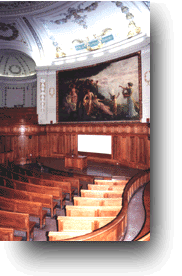
[Image: Richelieu amphitheater]
First, he says he was a student for “years,” which means at least two. The Descartes and Richelieu amphitheaters are large lecture halls where the professors give their lectures to students enrolled in their course. Daniel Lagache held the chair of psychology at the Sorbonne beginning in 1947; during the war he was active in the Resistance and had been imprisoned. This would make him especially attractive to Wiesel. I believe that one could manage to attend lectures when there was space without being enrolled in the course. Note that Wiesel carefully writes “There were lectures …”, not anything suggesting he was a student of Daniel Lagache.
At the Collège de France, which was not the Sorbonne, lectures were open and free to the public. Louis Lavell was a religious philosopher recognized as a forerunner of the psychometaphysic movement.
Conclusion: If Wiesel were a real student at the Sorbonne for at least two years, it’s a certainty he would have more to say about it than that he remembers lectures given by one professor in the amphitheaters. What was his course of study, who were his teachers, how much time did he spend studying and what kind of grades did he get? Who were his fellow students?
Instead, he substitutes that he “devoured books” of an assorted nature, which only means he read a lot. He “wandered” among bookstores and parks. He “remembers the silence” of a library [the Sainte-Genevieve, which is not at the Sorbonne] and “chance encounters” in the Sorbonne courtyard. This all sounds enchanting, but it doesn’t sound like a hard-working student … and he would have had to work hard at that university.
The rest of what he wrote, in spite of his remembering Freud and Martin Buber, is just more open lectures, now in the Latin Quarter. This is the description of a dilettante taking advantage of what was available in the great city, picking and choosing what interested him, not fitting into any strict discipline of real schooling. There is no doubt in my mind, under our present knowledge, that he was not a student; thus it’s no wonder he remembers his “student years” in Paris as happy; he was basically doing as he wished. Remember, he was a student of the mystic Shushani during this time.
What we find in this instance is totally reminiscent of the single paragraph by which he described in his memoir another important undertaking in his life—the writing of his first manuscript after his 10-year vow of silence [Or was it actually nine years? He jumped the gun by one year, according to his memoir]. The reason he has so little to say? It’s pretty obvious it is because there was nothing there for him to remember.
But these few lines in his 1995 memoir cannot be the origin of the belief that he was educated at the Sorbonne, because Time magazine wrote in 1986, after Wiesel was awarded the Nobel Peace Prize, that “After the war Wiesel settled in France, where he studied philosophy at the Sorbonne…” Where did Time magazine get that information? What is the earliest source of it? It would be interesting to know this, but it’s not essential because we know that Wiesel’s own brief mention, written in 1995, is not convincing. Thus any earlier mention of it would not be convincing either.
Has damage control on the Sorbonne question begun?
Here is another odd fact.
On Elie Wiesel’s Wikipedia page, there is no mention of his attending the Sorbonne University, let alone being enrolled there–or at any school or university. Yet, it was previously there and has been removed. It currently says:
After World War II, Wiesel taught Hebrew and worked as a choirmaster before becoming a professional journalist. He learned French, which became the language he used most frequently in writing. He wrote for Israeli and French newspapers, including Tsien in Kamf (in Yiddish) [and] L’arche.(6) [Both are Jewish newspapers, the first being Zion in Kamf in English -cy]
But on the previous Wikipedia page found at : http://web.archive.org/web/20080804112451/http://en.wikipedia.org/wiki/Elie_Wiesel dating from Aug. 2008, found at a web archive, it was there. [See comment #1 below.] And I think it was there up to 2010; during this year the page was updated. It read:
After the war, Wiesel was placed in a French orphanage, where he learned the French language and was reunited with both his older sisters, Hilda and Bea, who had also survived the war. In 1948 he studied philosophy at the Sorbonne.
Why was it removed? Only one reason: Because someone at Wiki, or someone who can direct someone at Wiki, knows that Elie Wiesel did not study at the Sorbonne, and they would like it to appear that they never said he did. This is what is called Rewriting History because it’s done without telling readers what has been changed, and why.
A serious charge? Or do many of you accept it without complaint? Many of us know that the life history of Elie Wiesel was partly made up to begin with, so adding and subtracting parts of it, as research into his life uncovers some of the lies, may simply appear understandable damage control.
Yet, what about the “why”? Whose bright idea was it to pretend that Wiesel had “studied” at a famous university rather than tell the truth that he has never been a registered student since he left his hometown in Sighet at age 15. We have to believe that Wiesel himself began saying and implying this to give himself better credentials. He has never disputed it or set the record straight. Therefore, until we hear from him, we have to conclude that Wiesel thinks nothing of committing fraud – while he constantly points the finger of blame to so many of the rest of us.
The Wikipedia page for his book Night still mentions the Sorbonne:
From 1947–1950, he studied the Talmud, philosophy, and literature at the Sorbonne, attending lectures by Jean-Paul Sartre and Martin Buber.(7)
[That also has been removed from this Wikipedia page. cy -2025] It appears to be taken from his memoir, but is confusingly written, no doubt purposefully. Confusion abounds around the narrative of the life of Elie Wiesel, as this entire website Elie Wiesel Cons The World shows. You’re probably already familiar with the quote of Wiesel to the Rebbe that some things are true that never happened and vice versa. On another occasion Wiesel revealed how his mind works. This is from Elie Wiesel: Conversations by Elie Wiesel and Robert Franciosi. Wiesel responds to a question about one of his books:
In this book “One Generation After” there is a sentence which perhaps explains my idea: “Certain events happen, but they are not true. Others, on the other hand, are, but they never happen.” So! I undergo certain events and, starting from my experience, I describe incidents which may or may not have happened, but which are true. I do believe that it is very important that there be witnesses always and everywhere. (8)
From this, the reader can judge for him/herself what kind of a witness Elie Wiesel is. We can understand that “certain events” he experienced during the war gave him ideas to “describe incidents which didn’t happen” but could have happened and so are true in his mind. This exactly explains how he can say “every word is true” and “I have a tattoo on my arm.” My judgment is that Wiesel really missed out by not getting an education at the Sorbonne, which might have grounded him in reason and precise language. As it is, he lives in a mystical realm wherein things are true because he says they are … leaving him satisfied, his peace undisturbed.
Endnotes:
1. Elie Wiesel, Memoirs: All Rivers Run to the Sea, Alfred Knopf, 1995, pp. 154-55.
2. Collège de France is a separate institution across the street from the historical campus of La Sorbonne at the intersection of Rue Saint-Jacques and Rue des Ecoles […] What makes it unique is that each professor is required to give lectures where attendance is free and open to anyone, even though some high-level courses are not open to the general public. The motto of the Collège is “It teaches everything;” its goal can be best summed up by Maurice Merleau-Ponty’s phrase: “Not preconceived notions, but the idea of free thought.” http://en.wikipedia.org/wiki/Coll%C3%A8ge_de_France
3. Updated Dec. 2. Prof. O’Connell says that Wiesel made this statement in his interview book with Brigitte-Fanny Cohen entitled Qui etes-vous, Elie Wiesel?, Lyon, La Manufacture, 1987, p. 63: “For two years, every morning, I took classes at the Hôpital Sainte-Anne and observed the patients.” Please read Prof. O’Connell’s comment below [#3] and my reply. A portion of this interview was included in Elie Wiesel: Conversations, ed. by Robert Franciosi, University Press of Mississippi, 2002.
4. “Elie Wiesel and the Catholics,” Culture Wars magazine, Nov. 2004. Online at http://www.culturewars.com/2004/Weisel.htm
5. This phenomenon is not limited to the Internet; historians also quote from the published work of other historians without knowing the truth of it. It’s enough for their source to be from a recognized scholar or writer from a recognized university.
6. http://en.wikipedia.org/wiki/Elie_Wiesel#cite_ref-11
7. http://en.wikipedia.org/wiki/Night_(book)
8. http://books.google.com/books?id=Ym8KcrzUZKYC&pg=PA32&lpg=PA32&dq=Elie+Wiesel,+Sorbonne&source=bl&ots=nahRgAmiLz&sig=PP17IzP9fhIZMFRfEg0sAWfpwDE&hl=en&ei=eSPbTK3CAZT0tgOfkqSaBw&sa=X&oi=book_result&ct=result&resnum=8&ved=0CFIQ6AEwBw#v=onepage&q=Elie%20Wiesel%2C%20Sorbonne&f=false
7 Comments
Category Featured | Tags: Tags: All Rivers Run to the Sea, damage control, Descartes and Richelieu amphitheaters, Sorbonne,
Social Networks: Facebook, Twitter, Google Bookmarks, del.icio.us, StumbleUpon, Digg, Reddit, Posterous.
Sunday, September 5th, 2010
by Carolyn Yeager
copyright 2010 Carolyn Yeager
Part III: Nine reasons why Elie Wiesel cannot be the author of Un di Velt Hot Gesvign (And the World Remained Silent).
1. The only original source for the existence of an 862-page Yiddish manuscript is Elie Wiesel.
Wiesel’s 1995 memoir All Rivers Run to the Sea is the first time he mentions writing this book in the spring of 1954 on an ocean vessel on his way to Brazil.
In the original English translation of Night, Hill and Wang, 1960, there is no mention of the Yiddish book from whence it came. Nowhere does it name the original version and publication date. There is no preface from the author, only a Foreword by Francois Mauriac who was satisfied to simply call the book a “personal record.”
In his 1979 essay titled “An Interview Unlike Any Other,” Wiesel declares that his first book was written “at the insistence of the French Catholic writer Francois Mauriac” after their first meeting in May 1955. There is no mention in this essay of a Yiddish book, of any length. By “his first book” he obviously meant La Nuit, published in 1958 in France. 38
In his Nobel Peace Prize acceptance speech in Dec. 1986, Wiesel doesn’t mention his books, but refers twice to the “Kingdom of Night” that he lived through and once says, “the world did know and remained silent.” So it’s not like he was unaware of this book title. 39
Thus, All Rivers Run appears to be the first mention of the Yiddish origin of Night. Why did Elie Wiesel decide to finally write about And the World Remained Silent in that 1995 memoir? Could it have been because in 1986, after being formally awarded the Nobel Peace Prize in Stockholm, he was “reunited” with a fellow concentration camp inmate Myklos Grüner, who, after that meeting, read the book Night that Wiesel had given him, recognized the identity of his camp friend Lazar Wiesel in it, and from that moment began his investigation of who this man named Elie Wiesel really was?
Grüner writes in his book Stolen Identity, “My work of research to find Lazar Wiesel born on the 4th of September 1913 started first in 1987, to establish contact with the Archives of Buchenwald.” 40 He was also writing to politicians and newspapers in Sweden. This could not have failed to attract the notice of Elie Wiesel and his well-developed public relations network. Grüner tracked down Un di Velt Hot Gesvign as the original book from which Night was taken, and believed it was written by his friend Lazar Wiesel and “stolen” somehow by “Elie.”41
This could account for why Elie Wiesel suddenly began to speak and write about his Yiddish book, published in Buenos Aires, Argentina in 1956. (It was actually inserted into the larger Polish collection in late 1954, according to the Encyclopedia Judaica [see part II], and printed as a single book in 1955, with a 1956 publication date.) 42
Wiesel claims the 862-page typescript he handed over to publisher Mark Turkov on the ship docked at Buenos Aires in spring 1954 was never returned to him.43 (Wiesel had not made a copy for himself, and didn’t ask Turkov to make copies and send him one, according to what he wrote in All Rivers.)
The only other person reported to ever have had the typescript in his hands was Mr. Turkov, but there is no word from him about it. We can only say for sure that he published a 245-page volume in Polish Yiddish titled Un di Velt Hot Gesvign by Eliezer Wiesel. The book has no biographical or introductory material—only the author’s name. Eric Hunt has made this Yiddish book available on the Internet 44 and is seeking a reliable translator.
There is practically nothing written about Mark Turkov. [Added 1-13-25: Since then I have found this: https://congressforjewishculture.org/people/4108/Turkov-Mark-May-11-1904-April-29-1983 in English, with some interesting images -cy] You can read about his accomplished family [there] and here. He was born in 1904 and died 1983. There is no direct testimony from Mark Turkov, that I have been able to find, that he ever received such a manuscript. Since Turkov lived until 1983 to see the book Night become a world-wide best seller, I find this inexplicable. Did no one seek him out to ask him questions, ask for interviews, take his picture? But at the same time, that becomes understandable if Night was not connected with Un di Velt until after 1986 [after Turkov’s death -cy], when Miklos Grüner entered the picture and began asking questions.
We’re left with asking: was there ever an 862 page manuscript? And if not, why does Wiesel say he wrote that many pages?
2. Wiesel could not have written the 862 pages in the time he says he did.
According to what he writes in All Rivers, Wiesel’s voyage lasted at most two weeks. Spending all his time in his cabin, cut off from all sources of information, seemingly on the spur of the moment (not pre-planned), he types feverishly and continuously on a portable typewriter (even though he’s written all his other books in long-hand, by his own testimony) and produces 862 typewritten pages without re-reading a single one. That comes out to an average of almost 62 pages daily, for 14 days straight. Is there anyone who could accomplish such a feat?
The scrawny Elie Wiesel is not a superman; he is not even the intense type, but more of a spaced-out thoughtful type. What’s more, he was not even tired out by this marathon effort, but immediately upon the ship docking at Sao Paulo, he became the active spokesman for a group of “homeless” Jews.
Here is a picture of a Yiddish typewriter from the 1950’s. Notice the red/black ribbon in front of the roller where the paper is inserted.
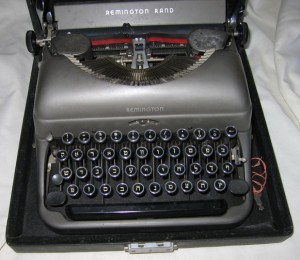 A point to consider about the typewriter: He would have used up a lot of ribbons typing that many pages. Ribbons are those inked strips of fabric that the metal characters hit to make the black or color impression on the white paper. This is something the computer generation doesn’t know anything about. The ribbons did not last all that long; the characters on the page got lighter as the ribbon was hit again and again; thus he would have been installing a new one with some regularity. As I recall, replacing the ribbon was not a very fun thing to do. Did he plan on writing day and night, and bring plenty of ribbons with him? Was he able to purchase more ribbons for his particular machine in Brazil?
A point to consider about the typewriter: He would have used up a lot of ribbons typing that many pages. Ribbons are those inked strips of fabric that the metal characters hit to make the black or color impression on the white paper. This is something the computer generation doesn’t know anything about. The ribbons did not last all that long; the characters on the page got lighter as the ribbon was hit again and again; thus he would have been installing a new one with some regularity. As I recall, replacing the ribbon was not a very fun thing to do. Did he plan on writing day and night, and bring plenty of ribbons with him? Was he able to purchase more ribbons for his particular machine in Brazil?
Another point about the typewriter brought up earlier by a reader: Was Wiesel a fast or slow typist? Many journalists were, and are, two-fingered (hunt and peck) typists because they never took typing classes. Where would Elie Wiesel have learned to type? In the newspaper office? If he was not a full-finger typist, it’s even less likely he could have churned out all those pages. Not to mention that these old typewriters did not allow the ease, and therefore speed, of our modern [computer] keyboard. These are practical questions that help us to ground ourselves in reality.
In addition, this manuscript is said to have been written in the style of a detailed history of the entire process of deportation, detention, people and places, punishments, liberation, yet Wiesel has no reference materials on board ship—only his memory. And since it was nine years since the events had ended, certainly some dulling of his memory had occurred. This simply could not be accomplished in the kind of mad rush Wiesel describes in All Rivers.
3. Wiesel’s motivation for attempting to write his concentration camp memories when he did is not given and is not apparent.
It’s astonishing that Wiesel gives only one paragraph in his memoir to the entire process of writing this book. He doesn’t write of thinking about it ahead of time. In fact, just at the time of his trip to Brazil he is carrying on a love affair in Paris, as well as being very busy, enthused and ambitious about his journalist assignments. Hanna, his love interest, had proposed marriage to him and he records in All Rivers that it “haunted me during the crossing,” during which time he “was worried sick that I might be making the greatest mistake of my life.”45 Yet, as though a kind of afterthought, he then tells us he spent the entire crossing holed up in his cabin, feverishly writing his very emotionally traumatic “witness” to the holocaust, even though only 9 years of his self-imposed 10-year vow of silence had passed.
In over 100 pages prior to the trip, Wiesel does not mention wanting to write about or even reflecting on his concentration camp year. The only explanation he includes in that paragraph is: “My vow of silence would soon be fulfilled; next year would mark the tenth anniversary of my liberation.”46 Then, just as suddenly, when he steps on land in Brazil, he is fully engaged in journalism and Hanna once again. He has given the typescript away and seems to have totally forgotten about it.
4. Wiesel had no opportunity to edit the 862 pages of And the World Remained Silent to the 245-page published version, yet he says he did.
Wiesel writes in All Rivers, “I had cut down the original manuscript from 862 pages to the 245 of the published Yiddish edition. French publisher Jerome Lindon edited La Nuit down to 178.”47 The time is 1957 and Wiesel is pleased a French publisher has been found for the manuscript he gave to Francois Mauriac—his French translation of Un di Velt Hot Gesvign, of which Wiesel says of the latter, “I had already pruned and abridged considerably.” The publisher, Lindon, now “proposed new cuts throughout, leading to significant differences in length among the successive versions.”
He repeats something similar in his Preface to the new 2006 translation of Night:
Though I made numerous cuts, the original Yiddish version still was long.48
He can only mean the 245-page book as the “original Yiddish version”—thus he “made cuts” from the longer version. But Wiesel could not have done it because he never saw the manuscript again after he supposedly gave it to Mark Turkov. He writes of his extremely busy life following the Brazil trip—covering world events as a journalist, spending time in Israel again before considering moving to NYC. He sounds underwhelmed when he reports receiving a copy of the Yiddish book in the mail from Turkov in Dec.1955, and devotes only a couple sentences to it. 49
Another time he refers to reducing the 245-page Yiddish version into a French version. Speaking of Mauriac:
He was the first person to read Night after I reworked it from the original Yiddish. 50
It is just these kinds of comments that cause the confusion remarked upon by Naomi Siedman in her essay commenting on Jewish rage in Wiesel’s first book. She writes that certain “scholars,” such as Ellen Fine and David Roskies give conflicting reports on the length of Wiesel’s original book, and it’s not clear just which book they are talking about. In my opinion, the reason for all the confusion is that they take Wiesel at his word as an honest witness … perhaps with some memory lapses. They won’t entertain the idea that this is part of a cover-up, the details of which Mr. Wiesel has a hard time keeping straight.
5. Wiesel’s recognized “style” and the style of the Yiddish book are noticeably different.
Not enough is known as yet to non-Yiddish readers like me about the content of Un di Velt Hot Gesvign to make the strongest case for the above statement, but a Jewish critic has provided some passages from the Yiddish book and I will quote from her (except for one passage from Joachim Neander). Naomi Siedman, in her long essay cited above, says this:
For the Yiddish reader, Eliezer Wiesel’s memoir was one among many, valuable for its contributing an account of what was certainly an unusual circumstance among East European Jews: their ignorance, as late as the spring of 1944, of the scale and nature of the Germans’ genocidal intentions. 51
In other words, holocaust narratives had already developed a “Yiddish genre” and the Wiesel memoir fit in with them. She explains:
When Un di velt had been published in 1956, it was volume 117 of Turkov’s series, which included more than a few Holocaust memoirs. The first pages of the Yiddish book provide a list of previous volumes (a remarkable number of them marked “Sold out”), and the book concludes with an advertisement/review for volumes 95-96 of the series, Jonas Turkov’s Extinguished Stars. In praising this memoir, the reviewer implicitly provides us with a glimpse of the conventions of the growing genre of Yiddish Holocaust memoir. Among the virtues of Turkov’s work, the reviewer writes, is its comprehensiveness, the thoroughness of its documentation not only of the genocide but also, of its victims.
[…]
Thus, whereas the first page of Night succinctly and picturesquely describes Sighet as “that little town in Transylvania where I spent my childhood,” Un di Velt introduces Sighet as “the most important city [shtot] and the one with the largest Jewish population in the province of Marmarosh,” and also “Until, the First World War, Sighet belonged to Austro-Hungary. Then it became part of Romania. In 1940, Hungary acquired it again.” 52
The Yiddish book has a different “feel” to it from Night; not only a different style, but a different personality is behind it. Ms. Seidman told E.J. Kessler, editor of The Forward:
The two stories can be reconciled in strict terms,” she said, “but they still give two totally different impressions, one of a person who’s desperate to speak versus one who’s reluctant.53
Here is a translation by Dr. Joachim Neander of a key passage in the Yiddish book, which he posted on the CODOH forum. It reveals an informal, talkative style, totally different from the spare, literary style used by Wiesel in all his books, even though the storyline is basically the same. Wiesel says he edited this book to its published form, but it doesn’t sound like him.
On January 15, my right foot began to swell. Probably from the cold. I felt horrible pain. I could not walk a few steps. I went to the hospital. The doctor examined the swollen foot and said: It must be operated. If you will wait longer, he said, your toes will have to be cut off and then the whole foot will have to be amputated. That was all I needed! Even in normal times, I was afraid of surgery. Because of the blood. Because of bodily pain. And now – under these circumstances! Indeed, we had really great doctors in the camp. The most famous specialists from Europe. But the means they had to their disposition were poor, miserable. The Germans were not interested in curing sick prisoners. Just the opposite.
If it had been dependent on me, I would not have agreed to the operation. I would have liked to wait. But it did not depend on me. I was not asked at all. The doctor decided to operate, and that was it. The choice was in his hands, not in mine. I really felt a little bit of joy in my heart that he had decided upon me.54
Back to Siedman’s translations. Two examples will have to suffice, from the Dedication and the very last paragraphs.
… while the French memoir is dedicated “in memory of my parents and of my little sister, Tsipora,” the Yiddish names both victims and perpetrators: “This book is dedicated to the eternal memory of my mother Sarah, father Shlomo, and my little sister Tsipora — who were killed by the German murderers.” 55
Now the book’s ending in the Yiddish version:
Three days after liberation I became very ill; food-poisoning. They took me to the hospital and the doctors said that I was gone. For two weeks I lay in the hospital between life and death. My situation grew worse from day to day.
One fine day I got up — with the last of my energy — and went over to the mirror that was hanging on the wall. I wanted to see myself. I had not seen myself since the ghetto. From the mirror a skeleton gazed out. Skin and bones. I saw the image of myself after my death. It was at that instant that the will to live was awakened. Without knowing why, I raised a balled-up fist and smashed the mirror, breaking the image that lived within it. And then — I fainted. From that moment on my health began to improve. I stayed in bed for a few more days, in the course of which I wrote the outline of the book you are holding in your hand, dear reader.
But — Now, ten years after Buchenwald, I see that the world is forgetting. Germany is a sovereign state, the German army has been reborn. The bestial sadist of Buchenwald, Ilsa Koch, is happily raising her children. War criminals stroll in the streets of Hamburg and Munich. The past has been erased. Forgotten. Germans and anti-Semites persuade the world that the story of the six million Jewish martyrs is a fantasy, and the naive world will probably believe them, if not today, then tomorrow or the next day.
So I thought it would be a good idea to publish a book based on the notes I wrote in Buchenwald. I am not so naive to believe that this book will change history or shake people’s beliefs. Books no longer have the power they once had. Those who were silent yesterday will also be silent tomorrow. I often ask myself, now, ten years after Buchenwald: Was it worth breaking that mirror? Was it worth it? 56
In contrast, Night ends with the gaze into the mirror at the very beginning of this passage. If the smashing of the mirror and the renewed will to live he felt from it was Elie Wiesel’s own experience, why would he leave it out in La Nuit? Because the publisher wanted it out? Not at all likely. Mauriac? Doubtful. It’s much more likely that it was not Elie Wiesel’s experience and it was not the kind of story he felt he could or wanted to tell.
Also note that the Yiddish writer says he wrote the outline of the book while still in the Buchenwald hospital, and that the published book is based on those notes. Elie Wiesel has never suggested that he began any writing in Buchenwald.
6. Wiesel wrote only one book in Yiddish; all subsequent books are in French.
If we could ask Elie Wiesel why he wrote his concentration camp memoirs in Yiddish, when he was already fluent and writing in French, we would probably get the answer he gave to his friend Jack Kolbert, who was writing a book about him:
“I wrote my first book, Night, in Yiddish, a tribute to the language of those communities that were killed. I began writing it in 1955. I felt I needed ten years to collect words and the silence in them.” 57
Alright. But we should also ask, just how good was Wiesel’s written Yiddish, that he could write this “enormous tome” in such a short time? After Nov. 29, 1947, Wiesel sought out and was given a job with the Irgun Yiddish weekly in Paris called Zion in Kamf. He tells how he was put to work translating Hebrew into Yiddish.
The task was far from easy. I read Hebrew well and spoke fluent Yiddish, but my Germanized written Yiddish wasn’t good. My style was dry and lifeless, and the meaning seemed to wander off into byways lined with dead trees. That was not surprising, since I was wholly ignorant of Yiddish grammar and its vast, rich literature.58
Even though he continued to translate and eventually write for the paper, he also spoke and wrote otherwise in French. He was attending classes at the Sorbonne and reading French classics and the newer existentialists. Following this first and only Yiddish book, Wiesel has done all his writing in French, by his own account—and in longhand, while the Yiddish was written on a typewriter.
It’s hard to reconcile Wiesel’s professed love of Yiddish 59 with his failure to do any writing beyond Un di Velt in that language. It’s suggested it is because Yiddish readers are a diminishing breed. No doubt, but that was already the case in 1954. For what it’s worth, Myklos Gruner records that when he met Elie Wiesel at their pre-arranged encounter in Stockholm in 1986, he asked Elie if he would like to speak in “Jewish,” and Elie said “no.” They ended up speaking together in English.60 Wiesel seems to have no interest in keeping the language alive.
7. Wiesel gives contradictory dates for the writing of his first book, and is fuzzy about what his “first book” is.
Wiesel makes it definite in All Rivers that he wrote the Yiddish book in the spring of 1954, in a cabin of a ship going to Brazil. But around the year 2000 he tells his friend Jack Kolbert:
It took me 10 years before I felt I was ready to do it. I wrote my first book, Night, in Yiddish, a tribute to the language of those communities that were killed. I began writing it in 1955. I felt I needed ten years to collect words and the silence in them. 61
So, is it 1954 or 1955? Wiesel says in All Rivers he met Francois Mauriac in May 1955, one year after his Brazil trip. Mauriac is often credited as the one who convinced Wiesel to end his silence, which culminated in Night. In his 1979 essay, “An Interview Unlike Any Other,” Wiesel writes:
Ten years of preparation, ten years of silence. It was thanks to Francois Mauriac that, released from my oath, I could begin to tell my story aloud. I owe him much, as do many other writers whose early efforts he encouraged. But in my case, something totally different and far more essential than literary encouragement was involved. That I should say what I had to say, that my voice be heard, was as important to him as it was to me.
[…]
(H)e urged me to write, in a display of trust that may have been meant to prove that it is sometimes given to men with nothing in common, not even suffering, to transcend themselves.62
He also wrote, in the same essay on the next page (17):
Paris 1954. As correspondent for the Israeli newspaper Yedioth Ahronoth, I was trying to move heaven and earth to obtain an interview with Pierre Mendes-France, who had just won his wager by ending the Indochina war. Unfortunately, he rarely granted interviews, choosing instead to reach the public with regular talks on the radio. Ignoring my explanations, my employer in Tel Aviv was bombarding me with progressively more insistent cabled reminders, forcing me to persevere, hoping for a miracle, but without much conviction. One day I had an idea. Knowing the admiration the Jewish Prime Minister bore the illustrious Catholic member of the Academie, why not ask the one to introduce me to the other? The occasion presented itself. I attended a reception at the Israeli Embassy. Francois Mauriac was there. Overcoming my almost pathological shyness, I approached him, and in the professional tone of a reporter, requested an interview. It was granted graciously and at once.
Wiesel continues the confusion around ’54 and ’55 when interviewed by the American Academy of Achievement on June 29, 1996 in Sun Valley, Idaho.63 In answer to the question “What persuaded you to break that silence?” he replied:
Oh, I knew ten years later I would do something. I had to tell the story. I was a young journalist in Paris. I wanted to meet the Prime Minister of France for my paper. He was, then, a Jew called Mendès-France. But he didn’t offer to see me. I had heard that the French author François Mauriac […] was his teacher. So I would go to Mauriac, the writer, and I would ask him to introduce me to Mendès-France. […]
Pierre Mendes-France became Prime Minister on June 18, 1954; his hold on that office ended on Jan. 20, 1955. Wiesel, according to his autobiography, had returned from Brazil, after writing and giving his 862-page Yiddish manuscript to Mark Turkov, expressly to cover the inauguration of France’s new Prime Minister for his Israeli newspaper.64 In this case, Wiesel’s first meeting with Mauriac had to be some time after mid-June 1954, since Mendes-France is already Prime Minister; it couldn’t have been in May or June 1955 because Mendes-France was long out of office. But in All Rivers, he puts his first Mauriac meeting in May 1955: “I first saw Mauriac in 1955 during an Independence Day celebration at the Israeli embassy.”(p.258) Israel’s Independence Day is May 14. Wiesel says the interview with Mauriac he obtained from that meeting resulted in his writing La Nuit and sending it to Mauriac one year later, in 1956. He continues describing that meeting to the Academy interviewer:
I closed my notebook and went to the elevator. He (Mauriac) ran after me. He pulled me back; he sat down in his chair, and I in mine, and he began weeping. […] And then, at the end, without saying anything, he simply said, “You know, maybe you should talk about it.”
He took me to the elevator and embraced me. And that year, the tenth year, I began writing my narrative. After it was translated from Yiddish into French, I sent it to him.
Wiesel says “the tenth year,” which would be 1955, but in the earlier part of the interview he is referring to 1954—because of Mendes-France. Snce he is mixing up the date, it’s no wonder we find the same mis-dating in stories about Wiesel’s life and accomplishments in books and on the Internet, including on Wikipedia pages.
Whenever it was that Wiesel had that fateful visit with Mauriac, he clearly did not mention that he had already written a very long Yiddish memoir, whether a year or a couple of months earlier. But had he written anything yet? Mauriac never alludes to a first Yiddish text. And as stated before, Wiesel himself didn’t either, until his 1995 memoir All Rivers Run to the Sea. This is truly noteworthy. Also, the title Un di Velt Hot Gesvign or, in English, And the World Remained Silent does not appear on the long list of “books by Elie Wiesel” at the beginning of All Rivers or the 2006 translation of Night.
To clarify an important problem Wiesel faces here: Wiesel, prior to 1990, claims to have first met and interviewed Mauriac in the spring of 1954 after returning from Brazil, but later changed it to May or June 1955. But even after that, he sometimes reverted to the 1954 scenario. When you are inventing all or parts of your life story, it’s difficult to keep it straight, especially when your guard is down.
A likely reason is his need to fit the writing and publication of the Yiddish book into his “schedule”, something he had not considered, or just ignored, previous to the Yiddish book being brought to the attention of the world by Myklos Grüner .
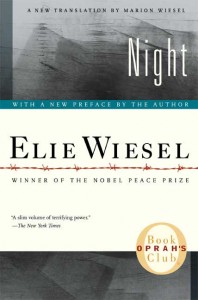
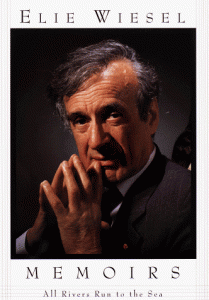
8. There are striking differences between Night, his “true story” derived from the Yiddish book, and his autobiography All Rivers Run to the Sea.
If Night is a true account of Wiesel’s holocaust experience, how to explain such major differences in the key passages that are compared below. In the first book it is his foot, in the latter his knee that is operated on right before the 1945 evacuation of Auschwitz.
Toward the middle of January, my right foot began to swell because of the cold. I was unable to put it on the ground. I went to have it examined. The doctor, a great Jewish doctor, a prisoner like ourselves, was quite definite: I must have an operation! If we waited, the toes—and perhaps the whole leg—would have to be amputated. .65
[…]
The doctor came to tell me that the operation would be the next day […] The operation lasted an hour.66
The doctor told him he would stay in the hospital for two weeks, until he was completely recovered. The sole of his foot had been full of pus; they just had to open the swelling. But, two days after his operation there was a rumor going round the camp that the Red Army was advancing on Buna. Not able to decide whether to stay in the hospital or join the evacuation, he left to look for his father.
“My wound was open and bleeding; the snow had grown red where I had trodden.” That night his “foot felt as if it were burning.” In the morning, he “tore up a blanket and wrapped my wounded foot in it.” 67
He and his father decided to leave. That night they marched out. They were forced to run much of the night and he ran on that foot, causing great pain. But after that he doesn’t mention it again. By contrast, in All Rivers, it is not his foot, but his knee that is operated on!
January 1945. Every January carried me back to that one. I was sick. My knee was swollen, and the pain turned my gait into a limp. […] That evening before roll call, I went to the KB. My father waited for me outside […] At last my turn came. A doctor glanced at my knee, touched it. I stifled a scream. “You need an operation,” he said. “Immediately.” […] One of the doctors, a tall, kind-looking man, tried to comfort me. “It won’t hurt, or not much anyway. Don’t worry, my boy, you’ll live.” He talked to me before the operation, and I heard him again when I woke up.” 68
[…]
January 18, 1945. The Red Army is a few kilometers from Auschwitz. […] My father came to see me in the hospital. I told him the patients would be allowed to stay in the KB […] and he could stay with me […] but, finally, we decided to leave with the others, especially since most of the doctors were being evacuated too.69
No further mention of the knee. How can we account for this bizarre change from foot to knee? It seems that as weak as Wiesel presents himself to be at Buna, he could not himself believe that he could run around on a foot that had just been operated on for pus in the sole, with no protection. So he simply changed it to his knee.
The next passage is after the liberation of Buchenwald on April 11, 1945. In Night:
Our first act as free men was to throw ourselves onto the provisions. We thought only of that. Not of revenge, not of our families. Nothing but bread.
And even when we were no longer hungry, there was still no one who thought of revenge. On the following day, some of the young men went to Weimar to get some potatoes and clothes—and to sleep with girls. But of revenge, not a sign.
Three days after the liberation of Buchenwald I became very ill with food poisoning. I was transferred to the hospital and spent two weeks between life and death.70
In All Rivers, Wiesel changes the story. He writes:
A soldier threw us some cans of food. I caught one and opened it. It was lard, but I didn’t know that.71 Unbearably hungry—I had not eaten since April 5—I stared at the can and was about to taste its contents, but just as my tongue touched it I lost consciousness.
I spent several days in the hospital (the former SS hospital) in a semiconscious state. When I was discharged, I felt drained. It took all my mental resources to figure out where I was. I knew my father was dead. My mother was probably dead ….. 72
From two weeks to only several days spent in the hospital. Could this change have anything to do with the famous “Buchenwald survivor” photograph73 that Elie discovered himself in sometime after 1980, when he was actively seeking a Nobel Prize? If he were in the hospital “between life and death” for two weeks following April 14 or so, he could not be in that photograph taken on April 16. The author of And the World Remained Silent, whoever he is, never claimed to be in that photograph.
9. Elie Wiesel refuses to back up his authorship by showing his tattoo.
If Elie Wiesel is the man who wrote Un di Velt Hot Gesvign, the source of the world-famous Night—the same man who wrote about receiving the tattoo number A7713 at Auschwitz in 1944—why won’t he show us this tattoo on his arm? And why do we see video of his left forearm with no tattoo visible at all? Wiesel could so easily clear up this problem, but he doesn’t choose to do so.
Endnotes:
38) Elie Wiesel, A Jew Today, Vintage Books, 1979, 260 pg.
39) http://worldsgreatestenglishclass.com/media/ww2/19EWSpeech.pdf
40) Stolen Identity, p. 50
41) Ibid, p. 43. Grüner mentions the 862 pages twice, but not with proof of their existence. “… Lazar Wiesel’s manuscript […] tell us his story and covers his survival of the Holocaust in 862 pages.” Also, “… had to use Lazar’s false identity in Paris and his existing manuscript of 862 pages …”
42) All Rivers, p. 277. “In December (1955) I received from Buenos Aires the first copy of my Yiddish testimony And the World Stayed Silent,” which I had finished on the boat to Brazil.”
43) Ibid.
44) http://rapidshare.com/files/441835370/Elie-Wiesel-Night-Yiddish.pdf
45) All Rivers, p. 239
46) Ibid, p. 240
47) Ibid, p. 319
48) Night, p. x
49) All Rivers, p. 277
50) Ibid. p. 267
51) Siedman, “Jewish Rage”
52) Ibid.
53) “The Rage that Elie Wiesel Edited Out of Night,” E.J. Kessler, ‘The Forward‘, October 4, 1996
54) http://forum.codoh.com/viewtopic.php?f=2&t=6146
55) Siedman, “Jewish Rage,” (trans. from Un di Velt)
56) Ibid. (Un di Velt, 244-45)
57) Jack Kolbert, The Worlds of Elie Wiesel: An Overview of His Career and His Major Themes, Susquehanna University Press, Selinsgrove, PA, 2001, p. 29
58) All Rivers, p.163
59) Ibid. p.291-92
60) Stolen Identity, p.31
61) Kolbert, p. 29
62) “An Interview Unlike Any Other,” Elie Wiesel, A Jew Today, trans. Marion Wiesel (New York, 1979), p.16
63) http://www.achievement.org/autodoc/page/wie0int-3
64) All Rivers, p. 242: “I had been away for two months when Dov recalled me to Paris to cover Pierre Mendes-France’s accession to power. I flew back …” This had to be in June 1954.
65) Night, p.82
66) Ibid. p.83
67) Ibid. p.87
68) All Rivers, p.89-90
69) Ibid. p.91
70) Night, p.115-16
71) Why would soldiers throw cans of lard? Sounds terribly disorganized and irregular. How did he open the can? If he didn’t know it was lard, and lost consciousness before he tasted it, we must assume someone in the hospital told him after he regained consciousness that he had been holding a can of lard when he was brought in. Either that or it’s just made up.
72) All Rivers, p.97
73) http://www.eliewieseltattoo.com/buchenwald
8 Comments
Category Featured | Tags: Tags: All Rivers Run to the Sea, Brazil, Buchenwald liberation, Francois Mauriac, knee/foot operation, Mark Turkov, Mendes-France, Miklos Grüner, Naomi Siedman, Night, Yedioth Ahronoth, Yiddish typewriter,
Social Networks: Facebook, Twitter, Google Bookmarks, del.icio.us, StumbleUpon, Digg, Reddit, Posterous.
Friday, August 6th, 2010
By Carolyn Yeager
copyright 2010 Carolyn Yeager
In literature, Rebbe, certain things are true though they didn’t happen, while others are not, even if they did. – Elie Wiesel, All Rivers Run to the Sea
Part One: When and how was Un di Velt Hot Gesvign written?
The question I present to you, the interested public is: Was Night, a slender volume of approximately 120 pages in its final English-language form, written by the same person who wrote its original source work: the reputed 862 typewritten pages of the Yiddish-language Un di Velt Hot Gesvign (And the World Remained Silent.
This is an important, though not crucial, question as to whether Elie Wiesel is an imposter. The evidence that I have uncovered so far is however, even on this question, not in his favor.
Naomi Seidman, professor of Jewish Studies at Graduate Theological Union, wrote a controversial article about Elie Wiesel titled “Elie Wiesel and the Scandal of Jewish Rage.” In that article, she mentions a 1979 essay by Wiesel, “An Interview Unlike Any Other,” that contains the following on page 15:
“So heavy was my anguish [in 1945] that I made a vow: not to speak, not to touch upon the essential for at least ten years. Long enough to see clearly. Long enough to learn to listen to the voices crying inside my own. Long enough to regain possession of my memory. Long enough to unite the language of man with the silence of the dead.”1
Just as an aside, I have to wonder whether these are believable thoughts for a 16 year old. And why wouldn’t his memory be better immediately, rather than 10 years hence?
In the essay, Wiesel also explains that his first book was written “at the insistence of the French Catholic writer and Nobel Laureate Francois Mauriac” after their first meeting in May 1955 when Wiesel had obtained an interview with the famous writer and the subject of the Shoah had come up. Wiesel told him he had taken a vow not to speak, but Mauriac insisted he must speak. “One year later I sent him the manuscript of Night, written under the seal of memory and silence.” 2
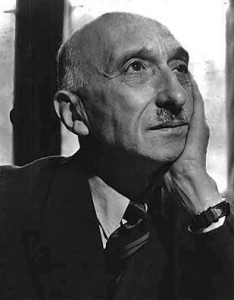 Francois Mauriac
Francois Mauriac
As far as I can tell, there is no mention in this 1979 essay about writing the almost 900 typewritten page Yiddish manuscript while on a ship headed for South America. This particular essay is not available on the Internet, and Seidman is one of the few that even mention it.
In his 1995 memoir, All Rivers Run to the Sea, Elie Wiesel gives a more complete description of his first attempt to record his camp experiences already in 1954, before the ten year vow of silence was up. Wiesel is always stingy with dates, and gives no exact month for the ship crossing, but from later comments about when he returned to Paris, we can place it in April 1954. Beginning on page 238:
I was sent on several European trips related to the Israeli-German conference on reparations, then to Israel, and finally to Brazil.
His assignment was to check out ‘suspicious’ Catholic missionary activities toward Jews.
My poet friend Nicholas proposed to go with me. A resourceful Israel friend somehow managed to come up with free boat tickets for us.3
Before he continues writing about the trip, he interjects a full page about a romance with Hanna, who wants to marry him, and whether he should. He tells her he will be gone 6 weeks—he is glad to have the time to think it over.
These questions haunted me during the crossing. I was worried sick that I might be making the greatest mistake of my life. Should a man marry a beautiful, intelligent, and impulsive woman with a marvelous voice, just because he had once loved her and because she had now proposed to him? And because he did not want to hurt her?
Then, the very next paragraph:
I spent most of the voyage in my cabin, working. I was writing my account of the concentration camp years—in Yiddish. I wrote feverishly, breathlessly, without re-reading. I wrote to testify, to stop the dead from dying, to justify my own survival. I wrote to speak to those who were gone. As long as I spoke to them, they would live on, at least in my memory. My vow of silence would soon be fulfilled; next year would mark the tenth anniversary of my liberation. I was going to have to open the gates of memory, to break the silence while safeguarding it. The pages piled up on my bed. I slept fitfully, never participating in the ship’s activities, constantly pounding away on my little portable (see comment #1 below), oblivious of my fellow passengers, fearing only that we would arrive in Sao Paulo too soon.
We were there before I knew it. 4
There is no lead-up in All Rivers Run to the Sea that his concentration camp “testimony” was heavy on his mind; this paragraph just jumps out of the blue. And it’s all he wrote, in a 418-page memoir, about the process of putting down the most important words he would ever write. But no! It seems clear from this that the finished words of La Nuit were the most important words he would write, and that he had a hard time knowing what to say about the writing of the “original” manuscript. So he brushed it off in one paragraph.
We get a very contrasting picture of Wiesel’s writing style in his Preface to the 2006 new English translation of Night by Marion Wiesel, his wife. Referring to his awareness [at that time] that he must bear witness, he writes:
Writing in my mother tongue [Yiddish]—at that point close to extinction—I would pause at every sentence, and start over and over again. I would conjure up other verbs, other images, other silent cries. It still was not right. But what exactly was “it”? ”It” was something elusive, darkly shrouded for fear of being usurped, profaned. All the dictionary had to offer seemed meager, pale, lifeless.
[…]
And yet, having lived through this experience, one could not keep silent, no matter how difficult, if not impossible, it was to speak.
And so I persevered.
[…]
Is that why my manuscript—written in Yiddish as “And the World Remained Silent” and translated first into French, then into English—was rejected by every major publisher …
[…]
Though I made numerous cuts, the original Yiddish version still was long. 5
Here, Wiesel tells us that he agonized over the writing of the Yiddish manuscript, and it was slow going. He even consulted the dictionary. But his time on the ship could not have been more than 2 weeks of the planned 6-week voyage to Brazil. In All Rivers Run to the Sea, he claims to have written 862 typewritten pages during that time, when he had to also eat, sleep and take care of other essentials. So of necessity he says he wrote feverishly, without re-reading. It leaves the two accounts as total contradictions.
When the ship docked at Sao Paulo, his friend Nicholas, an Israeli citizen, disembarked. But Elie, as a stateless person, was prevented from doing so by some “red tape.” Then he noticed a group of about 40 Jews from Palestine who had been “lured” over by the promises of Catholic missionaries, who also were not allowed to disembark. He makes the decision to join them and write their story for his newspaper. After traveling to several ports (Wiesel is now relegated with the unwanted Jews to staying in the ship’s hold), the boat docks at Buenos Aires, Argentina. It just so happens that in Buenos Aires a Yiddish singer came onboard with Jewish book publisher Mark Turkov. Wiesel shares his concern about the Jewish exiles, for whom he had become spokesman, with Turkov, and then:
As we talked, Turkov noticed my manuscript, from which I was never separated. He wanted to know what it was and whether he could look at it. I showed it to him, explaining it was unfinished. “That’s all right,” he said. “Let me take it anyway.” It was my only copy, but Turkov assured me it would be safe with him. I still hesitated, but he promised not only to read it, but “If it’s good, I’ll publish it.” Yehudit Moretzka (the singer) encouraged me by telling me she would make sure the manuscript would be returned to me in Paris, with or without a rejection slip. I was convinced Turkov wouldn’t publish it. I couldn’t see why any editor would be interested in the sad memoirs of a stranger he met on a ship, surrounded by refugees nobody wanted. “Don’t worry so much,” Yehudit told me as she left. But I felt lost without my manuscript. 6
This is the last that is said of the manuscript. Wiesel goes on to write about the positive outcome for the “exiles” and himself to go ashore in Sao Paulo, and Hanna’s letters which had piled up in the American Express office there. No further communication with Turkov is reported or any mention of his manuscript until 35 pages further on. It’s back to the business of journalism.
I had been away for two months when Dov recalled me to Paris to cover Pierre Mendes-France’s accession to power. I flew back, anxious to see Hanna. I would explain the exceptional circumstances, find a way to make her forgive me. She would understand, for I had missed her. I would tell her that I had been faithful to her, even in my thoughts.7
Handing his only copy (see comment #1 below) of the manuscript over to Mark Turkov in this strange manner appears to be an attempt to explain why Wiesel does not have possession of the original Un di Velt Hot Gesvign, but it is not convincing to me that he would turn such a “sacred –to him—soul work,” embodying his commitment to “witness for the dead,” over to strangers in a foreign country with only a vague promise that it would be returned. He is first consumed by it, then careless of it. He adds his professed belief that Turkov would not be interested in it and would never publish it. Why then part with it—and feel lost without it? Like so much of Wiesel’s writing, it stretches the limits of belief.
Even more, he says it was not completed to his satisfaction. There are several things Wiesel is likely trying to account and cover for with the ship book-writing story: (1) the incredible length of this manuscript and the short space of time he had to write it; (2) a way to get it into the hands of an Argentine Yiddish publisher in 1954; and (3) his lack of ever being in possession of the original and even being relatively unfamiliar with it. Writing in such a “feverish state”, without re-reading (impossible!), leaves him free to have no clear idea what was in it.
Several pages further on in All Rivers Run to the Sea, Wiesel writes about his meeting and relationship with Francois Mauriac:
He wrote of our first meeting in his column of Sat. May 14, 1955, referring to a “young Israeli who had been a Jewish child in a German camp.” Of course, I wasn’t Israeli. Perhaps in his mind, Jews and Israelis were the same thing.
I owe him a lot. He was the first person to read Night after I reworked it from the original Yiddish.8
Wiesel is telling us that “he” did the editing from the “original Yiddish.” He says the same in the Preface to the new 2006 translation of Night: “Though I made numerous cuts, the original Yiddish version still was long.”9
But when did he do this editing?
Mark Turkov, from whom I have not found one word of confirmation for the ship scene with Elie Wiesel, must have reduced the 862 pages to 245 pages himself because he published it in the same year, 1954, in his 176-volume series of Yiddish memoirs of Poland and the war, called Dos poylishe yidntum (Polish Jewry, Buenos Aires, 1946-1966).10
The next and last mention of Mark Turkov and the manuscript in All Rivers Run to the Sea again pops up as less than a paragraph in the midst of Wiesel’s busy schedule and after the breakup of another love affair, with Kathleen this time, in the summer of 1955. He writes:
In December I received from Buenos Aires the first copy of my Yiddish testimony “And the World Stayed Silent,” which I had finished on the boat to Brazil. The singer Yehudit Moretzka and her editor friend Mark Turkov had kept their word—except that they never did send back the manuscript. Israel Adler invited me to celebrate the event with a café-crème at the corner bistro.11
That’s it, believe it or not. This is obviously something Wiesel is not interested in focusing attention on. Because none of it is true?
The timing also requires that after Wiesel received the Yiddish book from Turkov in December ’55, he managed to translate the 245 pages into French for Francois Mauriac, and present it to him in May 1956–as Wiesel testified in “An Interview Unlike Any Other.”
What can we believe?
Certainly Elie Wiesel, who had cousins living in Buenos Aires 12, could have known about Mark Turkov’s Yiddish publishing house and his massive series of WWII “survivor” memoirs. He could very well have read some of them, even the one titled Un di Velt Hot Gesvign, written by a Lazar (Eliezer) Wiesel from Sighet, Transylvania, which may have been passed around within the Yiddish-speaking community before it was published. Wiesel could therefore have used the volume of 245 pages to write a French version for Francois Mauriac.
Could someone have intervened with Mark Turkov to convince him to go along with Elie Wiesel as the author? Sure, they could. And could something have happened to Lazar Wiesel, survivor of Auschwitz-Birkenau-Buchenwald, born Sept. 4, 1913, causing him to disappear from the scene? 13 Again, yes, and maybe not even foul play. This is speculation at this point, but nevertheless quite possible.
In Part Two, I will discuss the tell-tale differences between Un di Velt Hot Gesvign and La Nuit, suggesting two different authors, and what some critics say about it.
Endnotes:
1. “Elie Wiesel and the Scandal of Jewish Rage,” Naomi Seidman, Jewish Social Studies: History, Culture, and Society, Fall 1996 (Vol 3, No.1). Online at http://www.vho.org/aaargh/fran/tiroirs/tiroirEW/WieselMauriac.html
2. Ibid.
3, Comment: If this is an assignment by the newspaper for which he is chief foreign correspondent, why does he need or want free tickets? Is this the way Israeli newspapers operated?
4. Elie Wiesel, All Rivers Run to the Sea: Memoirs (New York, 1995), pp. 238-40.
5. Elie Wiesel, Night, translated by Marion Wiesel, (New York, Hill and Wang, 2006), p. ix, x.
6. All Rivers Run to the Sea, ibid. p. 241
7. ibid, p. 242
8. Ibid, p. 267
9. Night, 2006, p. x
10. Encyclopedia Judaica, 2008
11. All Rivers Run to the Sea, p. 277
12. Ibid, p. 241. “In Buenos Aires my cousins Voicsi and her husband Moishe-Hersh Genuth came to meet us. I gave them some articles for the Yedioth Ahronoth, unaware that they would be reprinted or quoted in the American Jewish press.”
13. Miklos Grüner claims that this Lazar Wiesel, his camp friend, is the true author of Un di Velt Hot Gesvign and that Elie Wiesel stole both his identity and his book.
15 Comments
Category Featured | Tags: Tags: All Rivers Run to the Sea, Brazil, Francois Mauriac, Mark Turkov, Naomi Seidman, Night, Un di Velt Hot Gesvign,
Social Networks: Facebook, Twitter, Google Bookmarks, del.icio.us, StumbleUpon, Digg, Reddit, Posterous.






















![EW_Stern [gang]](https://www.eliewieseltattoo.com/wp-content/uploads/2011/01/EW_Stern-gang1.jpg)






